

REVOLUTION FESTIVAL
REVOLUTION FESTIVAL
THE SCHOOL OF COMMUNISM
14-16 NOVEMBER
FRIENDS HOUSE, 173-177 EUSTON ROAD, LONDON
The Revolution Festival is a three day school of communist ideas, aimed at training a new layer of revolutionaries for the fight to end capitalism, and for the building of a society based on the interests of the masses — not the profits of a handful of useless, greedy billionaires.
Frustration and anger is boiling over across Britain. Wages stagnate while prices soar, public services crumble while the rich line their pockets, and decisions that shape millions of lives are made in gilded rooms.
The British establishment is dripping from head to toe with blood and dirt, supporting genocide abroad and murder by austerity at home. People standing against genocide are being locked up, while the real terrorists sit comfortably in Whitehall.
People have a right to be angry, but anger alone is not enough. It must be sharpened by revolutionary theory and strategy. On this basis, the rising anger can become a powerful force for the overthrow of the billionaires and their corrupt system.
Join comrades of the Revolutionary Communist Party from, 14th-16th November 2025, and help build a revolutionary force to end capitalism once and for all.
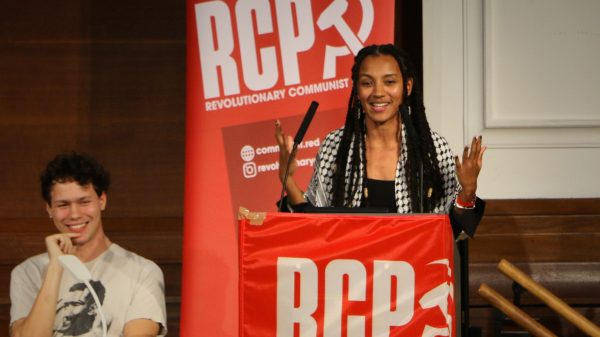
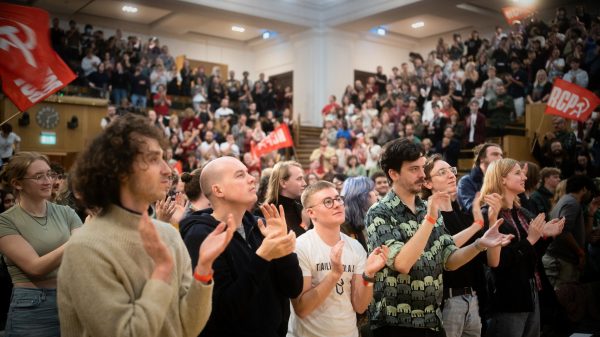
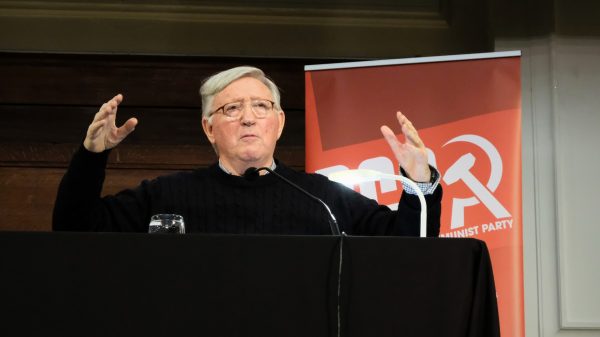

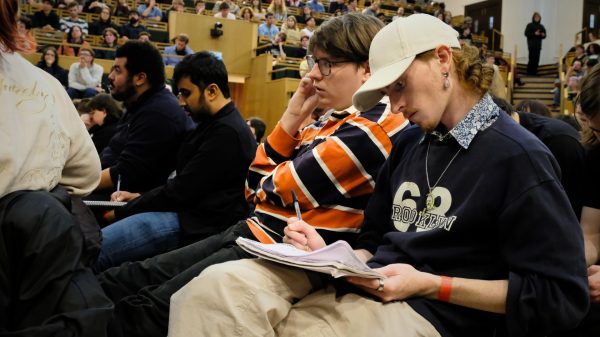

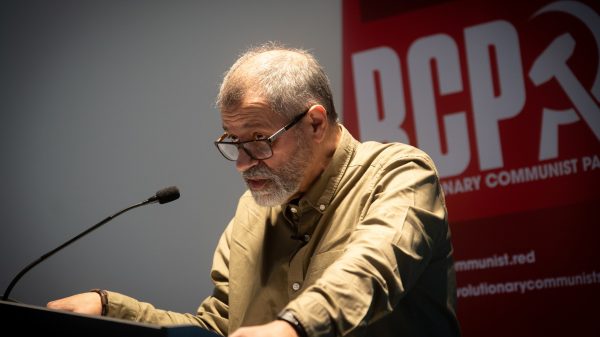
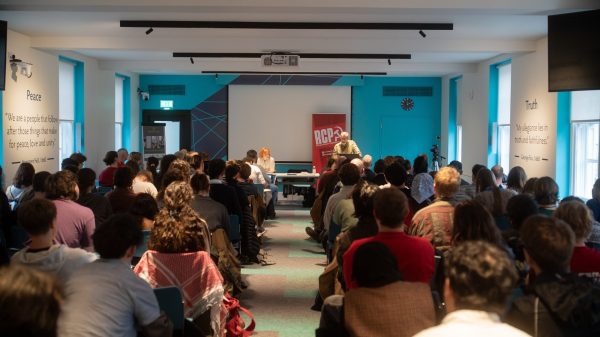

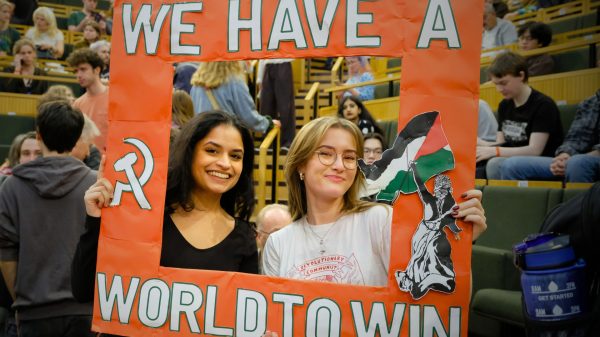
READING GUIDE
READING GUIDE
The purpose of the Revolution Festival is to train the next generation of communist class-fighters in Marxist theory — our most important weapon in the fight against capitalism.
A reading guide has been produced to prepare for the weekend’s events. You can access it here.
TALKS &
TIMETABLE
Friday 14th November
Friday 14th November
Opening plenary session — 18:30 - 21:00
Opening plenary session
18:30 - 21:00
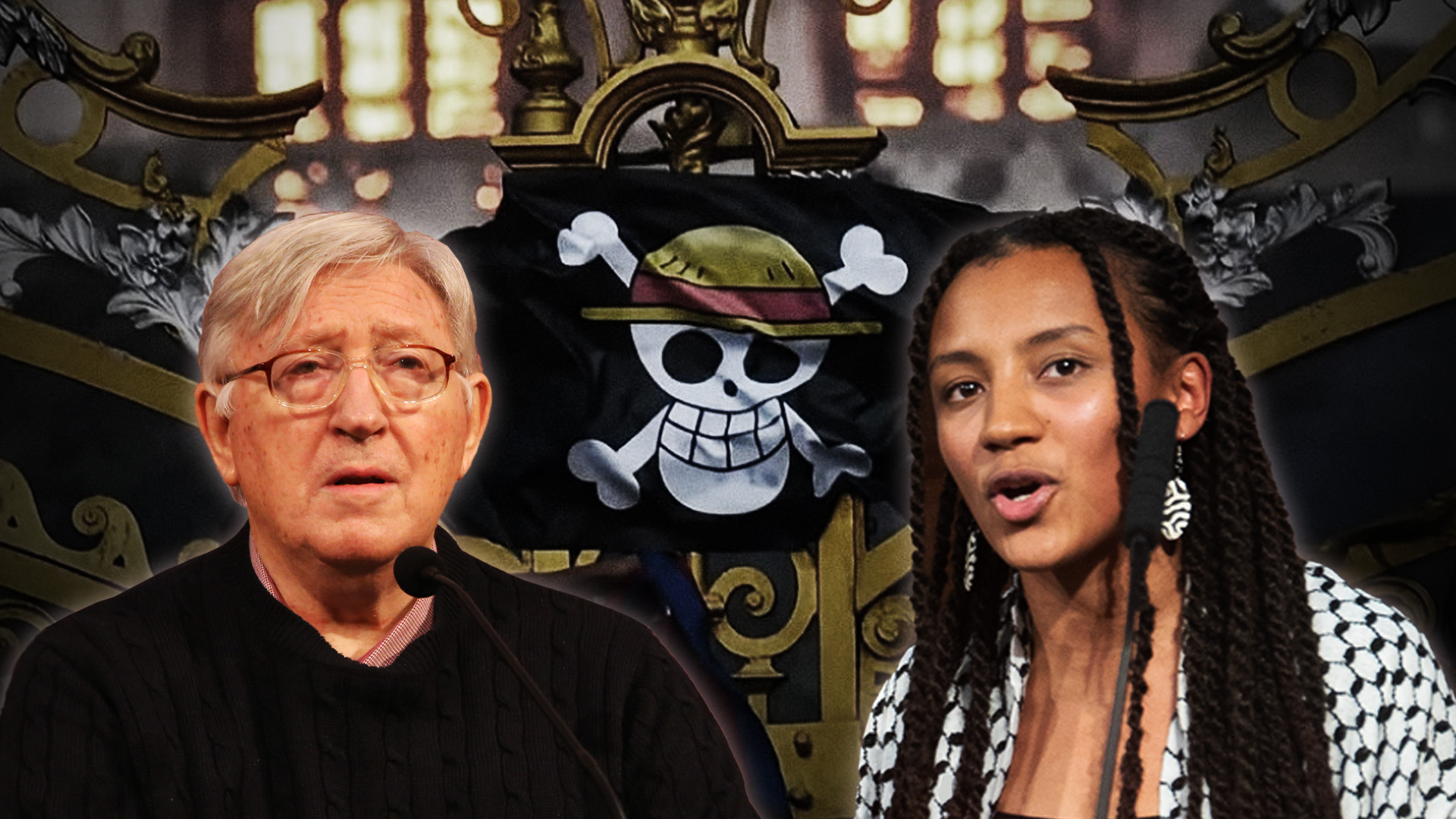
A World on Fire — with Alan Woods and Fiona Lali
Room: The Light (main auditorium)
A World on Fire — with Alan Woods and Fiona Lali
Room: The Light (main auditorium)
The Russian revolutionary Vladimir Lenin once remarked that, in world history, there are decades where nothing happens, and weeks where decades happen.
Since the crisis of 2008, combustible material has been building in the foundations of the world system. In the past few weeks, this material has been lit in one country after another. Explosive movements are taking place; from Asia to Africa, from Latin America to Europe.
To many people, it seems like the world has gone mad. To others, it seems like we are reaching the end of the world as we know it. In reality, we are living through the death agony of the capitalist system, which has long reached its limits. Millions of workers and youth are beginning to move, opening up a period of intensified class struggle on an unprecedented scale.
In this opening session of the Revolution Festival, Alan Woods — acclaimed Marxist author and leading member of the International Secretariat of the RCI — and Fiona Lali — member of the Executive Committee and National Campaigns Coordinator for the RCP — will discuss the rising tide of world revolution.
Saturday 15th November
Saturday 15th November
Morning sessions
10:30 - 12:15
Morning sessions
10:30 - 12:15

Is America heading for revolution?
Room: The Light (main auditorium)
Is America heading for revolution?
Room: The Light (main auditorium)
Speaker: Fred Weston
The most powerful imperialist country on the planet is facing the deepest crisis in its history. The American Dream is well and truly over, and this is destabilising the political system of the United States. The country’s relative decline has produced the Trump phenomenon. Is this preparing a further shift to the right, as many commentators claim? Or is Trump preparing the ground for a massive backlash from the workers and youth of America?
US debt has reached unprecedented levels. Someone has to pay — but the question is, who? The workers and youth of America are seeking solutions. Trump cannot deliver. On the contrary, he is acting in the interests of the boss class. When this becomes abundantly clear through the concrete, lived experience of millions of workers, a new scenario will open up — one of intense class struggle. And that scenario is not too far down the road.
In this talk, Fred Weston, member of the RCI International Secretariat, will discuss the perspective of an American Revolution.
The most powerful imperialist country on the planet is facing the deepest crisis in its history. The American Dream is well and truly over, and this is destabilising the political system of the United States. The country’s relative decline has produced the Trump phenomenon. Is this preparing a further shift to the right, as many commentators claim? Or is Trump preparing the ground for a massive backlash from the workers and youth of America?
US debt has reached unprecedented levels. Someone has to pay — but the question is, who? The workers and youth of America are seeking solutions. Trump cannot deliver. On the contrary, he is acting in the interests of the boss class. When this becomes abundantly clear through the concrete, lived experience of millions of workers, a new scenario will open up — one of intense class struggle. And that scenario is not too far down the road.
In this talk, Fred Weston, member of the RCI International Secretariat, will discuss the perspective of an American Revolution.
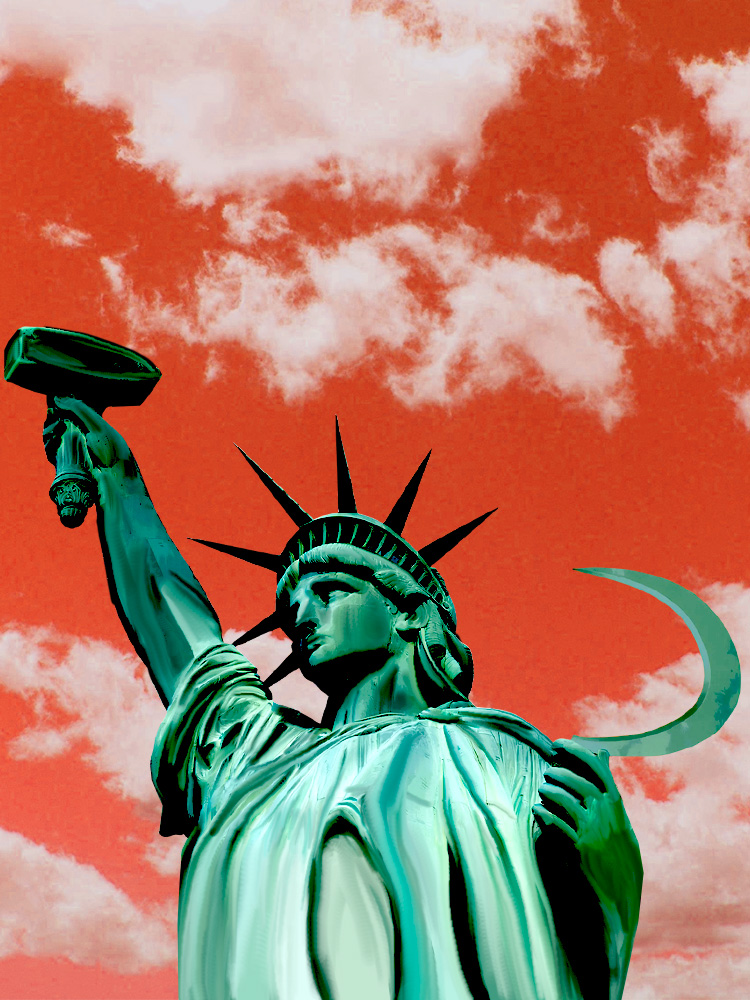
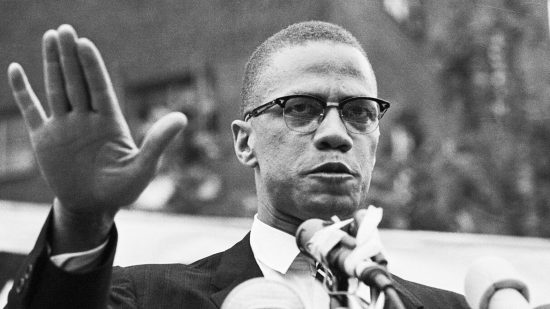
100 years of Malcolm X: From nation to
revolution
Room: Benjamin Lay
100 years of Malcolm X: From nation to revolution
Room: Benjamin Lay
Speaker: Fiona Lali
Malcolm X is synonymous with the Black liberation movement. His life was dedicated to struggle, ending in his murder in 1965.
His view that liberation should be fought for “by any means necessary” became a battle cry for the oppressed across the globe, who could see the limits of peaceful protest and of abiding by laws designed to oppress them.
Beginning as a Black nationalist and member of the Nation of Islam, he witnessed the development of the civil rights movement in the US and observed anti-colonial revolutions across Africa.
This pushed him toward internationalist and anti-capitalist ideas. Later in life, he famously proclaimed: “You cannot have capitalism without racism.” It’s no coincidence he was murdered when his ideas became explicitly anti-capitalist.
In this talk, Fiona Lali, member of the RCP Executive Committee, will discuss the life and ideas of Malcolm X and how we can honour his legacy by overthrowing the oppression and exploitation that still plague the world.
Malcolm X is synonymous with the Black liberation movement. His life was dedicated to struggle, ending in his murder in 1965.
His view that liberation should be fought for “by any means necessary” became a battle cry for the oppressed across the globe, who could see the limits of peaceful protest and of abiding by laws designed to oppress them.
Beginning as a Black nationalist and member of the Nation of Islam, he witnessed the development of the civil rights movement in the US and observed anti-colonial revolutions across Africa.
This pushed him toward internationalist and anti-capitalist ideas. Later in life, he famously proclaimed: “You cannot have capitalism without racism.” It’s no coincidence he was murdered when his ideas became explicitly anti-capitalist.
In this talk, Fiona Lali, member of the RCP Executive Committee, will discuss the life and ideas of Malcolm X and how we can honour his legacy by overthrowing the oppression and exploitation that still plague the world.

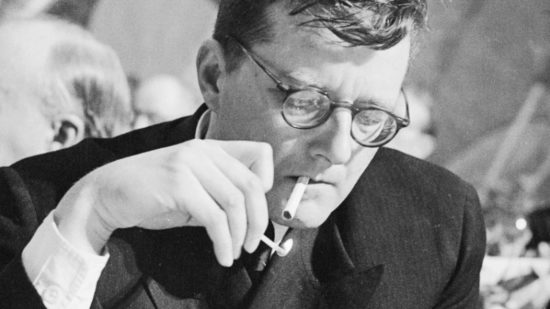
Shostakovich: The musical voice of the
Russian Revolution
Room: Sarah Fell
Shostakovich: The musical conscience of the Russian Revolution
Room: Sarah Fell
Speaker: Peter Kwasiborski
Classical music may seem a world apart from revolutionary politics — but it isn’t.
The legacy of Dmitri Shostakovich has been the subject of a veritable war of interpretations in the half-century since his death. As an opponent of Stalin’s regime, he is often portrayed as an anti-communist, opposed to everything the USSR stood for. Others, noting his decision to remain in the Soviet Union and compose works that resonated with the needs of society, paint him as a Stalinist stooge — a puppet of the CPSU.
Neither of these portrayals is even remotely accurate.
In this talk, Peter Kwasiborski, leading member of the RCP, will explore the life and music of Shostakovich — and his true legacy: that of the musical conscience of the genuine ideals of the October Revolution. A legacy that should be upheld and cherished by the Bolsheviks of today.
Classical music may seem a world apart from revolutionary politics — but it isn’t.
The legacy of Dmitri Shostakovich has been the subject of a veritable war of interpretations in the half-century since his death. As an opponent of Stalin’s regime, he is often portrayed as an anti-communist, opposed to everything the USSR stood for. Others, noting his decision to remain in the Soviet Union and compose works that resonated with the needs of society, paint him as a Stalinist stooge — a puppet of the CPSU.
Neither of these portrayals is even remotely accurate.
In this talk, Peter Kwasiborski, leading member of the RCP, will explore the life and music of Shostakovich — and his true legacy: that of the musical conscience of the genuine ideals of the October Revolution. A legacy that should be upheld and cherished by the Bolsheviks of today.
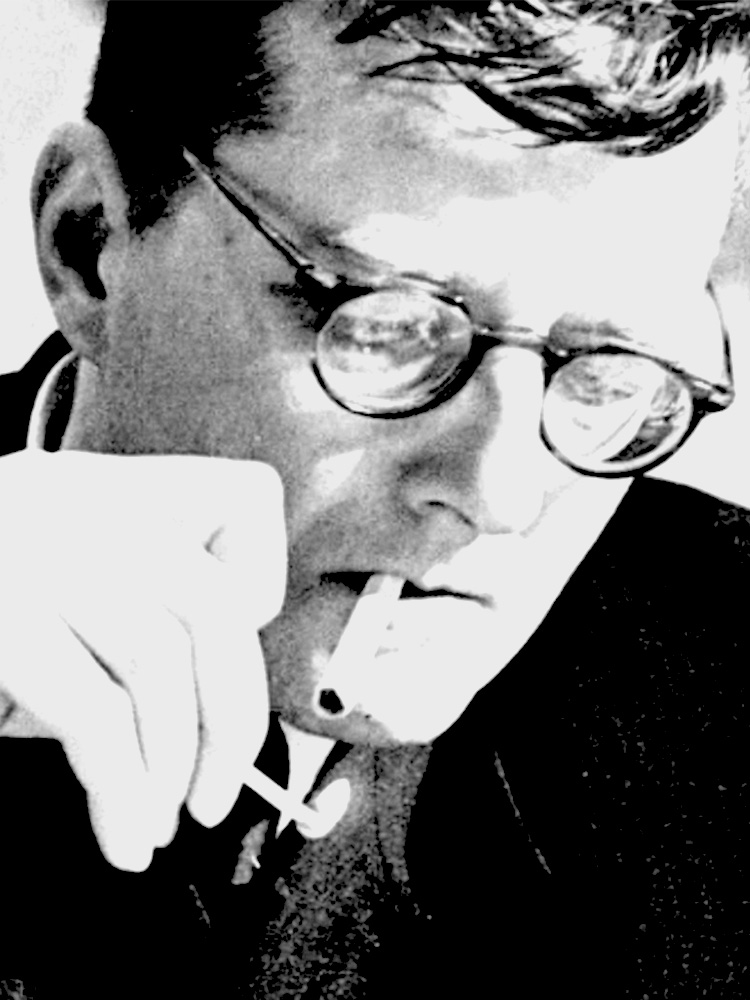
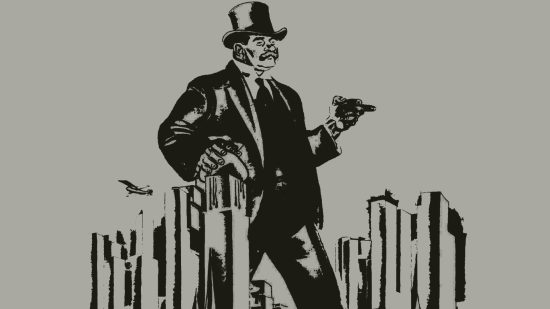
Marx's Capital: A guide to capitalism's
inner workings
Room: Ada Salter
Marx's Capital: A guide to capitalism's inner workings
Room: Ada Salter
Speaker: Adam Booth
“It is without question the most terrible missile that has yet been hurled at the heads of the bourgeoisie.”
This was Karl Marx’s assessment of his magnum opus, Das Kapital, published in 1867.
In this incredible work, Marx sought to uncover the inner workings of the capitalist system: the contradictions and dynamics that lie behind the movements and motion of the market economy.
Basing himself on the most advanced material of the age, Marx was able to explain the mysteries that his predecessors were incapable of resolving. What is value? Where does profit come from? How are workers exploited? And why does the system face periodic crises?
In this talk, Adam Booth, co-author of Understanding Marx’s Capital, explores these questions, introduces the key concepts within Marxist economics, and outlines the relevance of these ideas in relation to today’s crisis-ridden capitalist system.
“It is without question the most terrible missile that has yet been hurled at the heads of the bourgeoisie.”
This was Karl Marx’s assessment of his magnum opus, Das Kapital, published in 1867.
In this incredible work, Marx sought to uncover the inner workings of the capitalist system: the contradictions and dynamics that lie behind the movements and motion of the market economy.
Basing himself on the most advanced material of the age, Marx was able to explain the mysteries that his predecessors were incapable of resolving. What is value? Where does profit come from? How are workers exploited? And why does the system face periodic crises?
In this talk, Adam Booth, co-author of Understanding Marx’s Capital, explores these questions, introduces the key concepts within Marxist economics, and outlines the relevance of these ideas in relation to today’s crisis-ridden capitalist system.
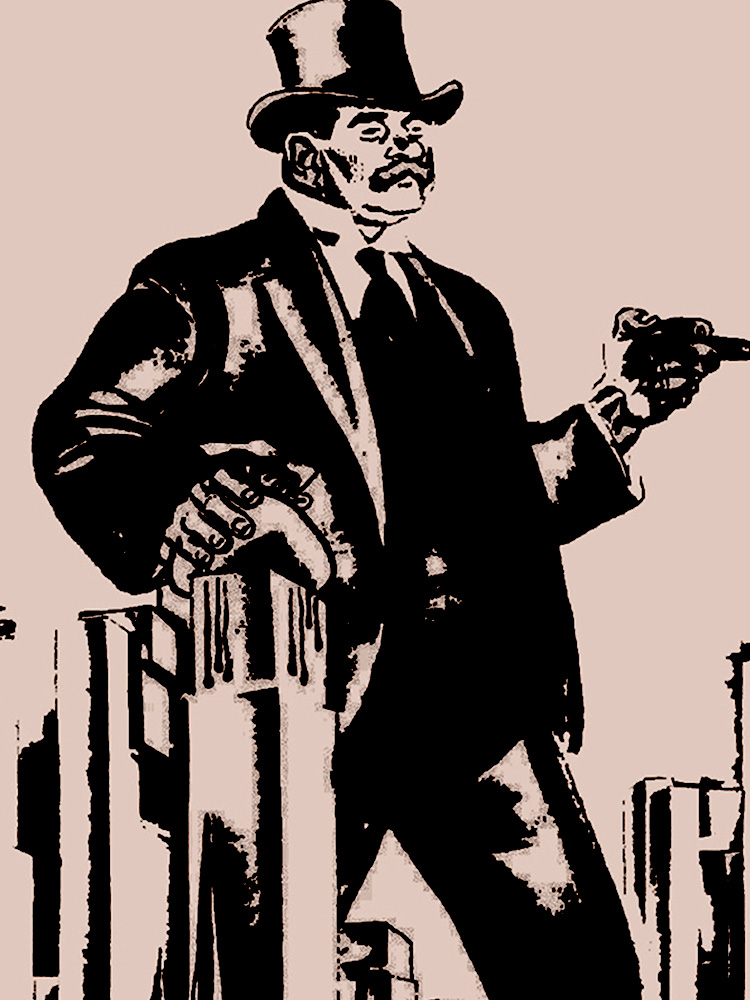

Horror without end: Imperialism and
the Middle East
Room: Hilda Clark
Horror without end: Imperialism and the Middle East
Room: Hilda Clark
Speaker: Lubna Badi
Imperialist meddling in the Middle East dates back even before the crime of partition, when the region was divided among imperial powers through the Sykes-Picot Agreement. Since then, the region has faced continuous interference from Western imperialism, driven by profit and strategic control. Since the end of the Cold War, attempts to establish complete US dominance in the Middle East have brought wars and interventions, fueling cycles of instability, violence, sectarianism, and human suffering.
In this talk, RCP Central Committee member, Lubna Badi, will explore these developments, clarify why for so many people in the Middle East the experience has been one of endless horror, and explain how imperialism can be permanently expelled from the region.
Imperialist meddling in the Middle East dates back even before the crime of partition, when the region was divided among imperial powers through the Sykes-Picot Agreement. Since then, the region has faced continuous interference from Western imperialism, driven by profit and strategic control. Since the end of the Cold War, attempts to establish complete US dominance in the Middle East have brought wars and interventions, fueling cycles of instability, violence, sectarianism, and human suffering.
In this talk, RCP Central Committee member, Lubna Badi, will explore these developments, clarify why for so many people in the Middle East the experience has been one of endless horror, and explain how imperialism can be permanently expelled from the region.

————————————————-
Early afternoon sessions
13:15 - 15:00
Early afternoon sessions
13:15 - 15:00

Europe in crisis: Block everything for Palestine
Room: The Light (main auditorium)
Europe in crisis: Block everything for Palestine
Room: The Light (main auditorium)
Speaker: Jorge Martin
The workers of Italy mobilised a general strike against Israel’s attacks on the flotilla, and against the continuing atrocities in Gaza. This was a political general strike over internationalist solidarity and against imperialism, with few precedents.
Millions participated in industrial action, two million in mass demonstrations, and hundreds of thousands took direct action under the slogan of “let’s block everything”. The next day, over a million turned out in Rome for a national demonstration against the genocide.
These events are part of a dramatic turn in the world situation. It was not limited to Italy, but includes the mass movements in France, Spain, and Greece, and the ‘Gen Z’ revolutions, creating Red September. The slogan of ‘Block Everything for Palestine’ is resonating here in Britain, with the Italian situation showing what’s possible through the immense strength of the working class.
In this session, Jorge Martin, member of the RCI International Secretariat, will draw out the main features and implications of these movements, and the essential lessons for anyone fighting for a free Palestine in our lifetime.
The workers of Italy mobilised a general strike against Israel’s attacks on the flotilla, and against the continuing atrocities in Gaza. This was a political general strike over internationalist solidarity and against imperialism, with few precedents.
Millions participated in industrial action, two million in mass demonstrations, and hundreds of thousands took direct action under the slogan of “let’s block everything”. The next day, over a million turned out in Rome for a national demonstration against the genocide.
These events are part of a dramatic turn in the world situation. It was not limited to Italy, but includes the mass movements in France, Spain, and Greece, and the ‘Gen Z’ revolutions, creating Red September. The slogan of ‘Block Everything for Palestine’ is resonating here in Britain, with the Italian situation showing what’s possible through the immense strength of the working class.
In this session, Jorge Martin, member of the RCI International Secretariat, will draw out the main features and implications of these movements, and the essential lessons for anyone fighting for a free Palestine in our lifetime.
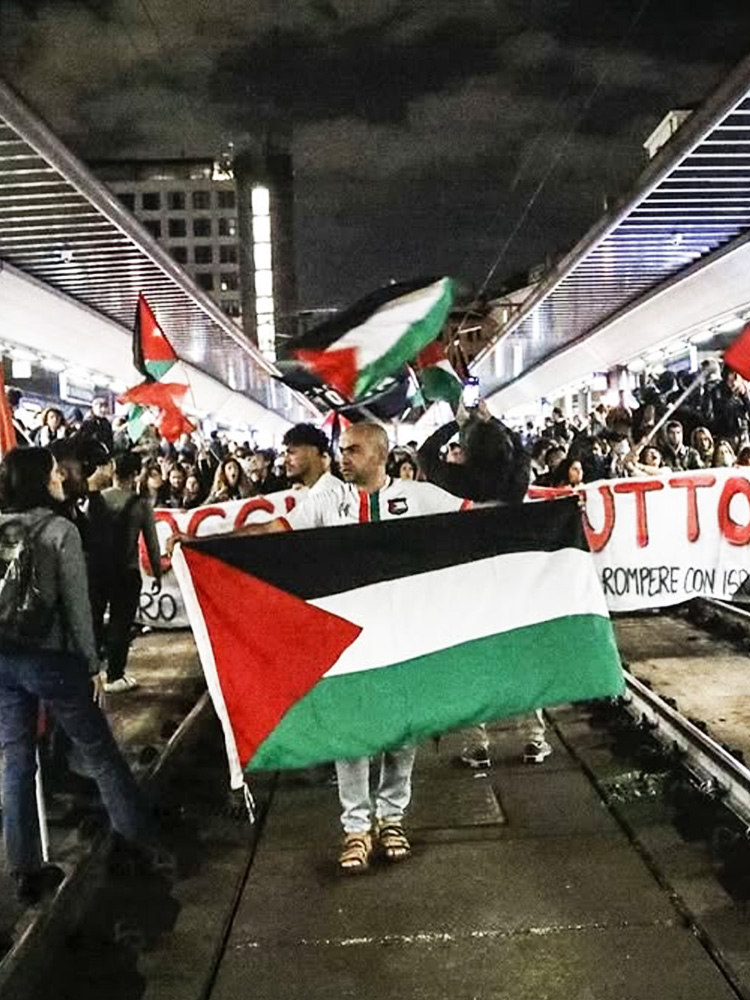
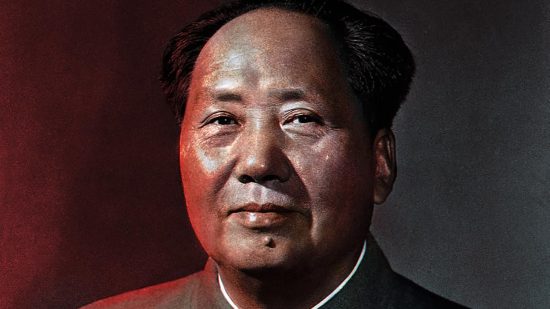
Mao Zedong: His life, legacy, and limits
Room: Benjamin Lay
Mao Zedong: His life, legacy, and limits
Room: Benjamin Lay
Speaker: Daniel Morley
There is no doubt that the Chinese Revolution was one of the greatest events in human history. It freed China from the shackles of imperialism after a heroic, decades-long struggle.
Since Mao’s death, capitalism has been gradually restored in China by the bureaucracy of the Chinese Communist Party (CCP). In his final years, Mao is seen to have waged a struggle against the “capitalist roaders” within the CCP. As a result, many revolutionaries, both inside and outside China, have understandably looked to Mao’s ideas as a guide for action in the struggle for a new revolution.
However, while he achieved incredible things, there were also serious tragedies and horrors under his leadership that must be explained — such as the famines of the Great Leap Forward and China’s de facto alliance with the USA against the USSR.
In this talk, Daniel Morley, member of the RCP Executive Committee, will address key questions: Is there a connection between these serious errors and the CCP’s eventual return to capitalism? And do communists need to make use of the best of Mao’s ideas to once again abolish capitalism in China?
The Chinese Revolution was one of the greatest events in human history. It freed China from the shackles of imperialism after a heroic, decades-long struggle.
Since Mao’s death, capitalism has been gradually restored in China by the bureaucracy of the Chinese Communist Party (CCP). In his final years, Mao is seen to have waged a struggle against the “capitalist roaders” within the CCP. As a result, many revolutionaries, both inside and outside China, have understandably looked to Mao’s ideas as a guide for action in the struggle for a new revolution.
While he achieved incredible things, there were also serious tragedies and horrors under his leadership that must be explained — such as the famines of the Great Leap Forward and China’s de facto alliance with the USA against the USSR.
In this talk, Daniel Morley, member of the RCP Executive Committee, will address key questions: Is there a connection between these serious errors and the CCP’s eventual return to capitalism? Do communists need to make use of the best of Mao’s ideas to once again abolish capitalism in China?
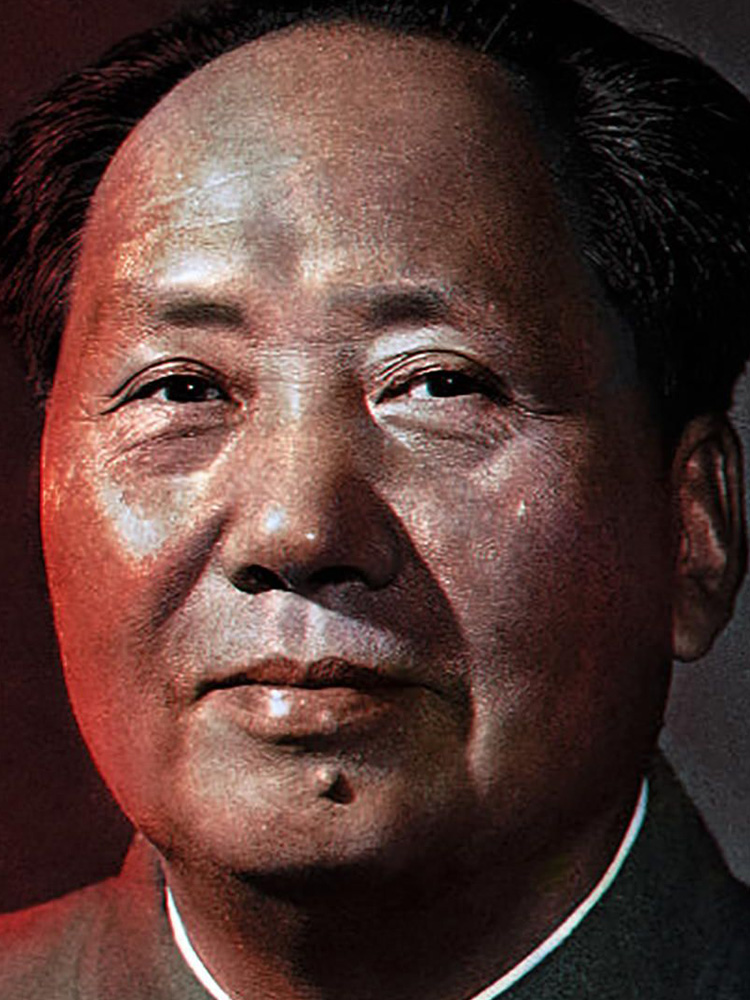
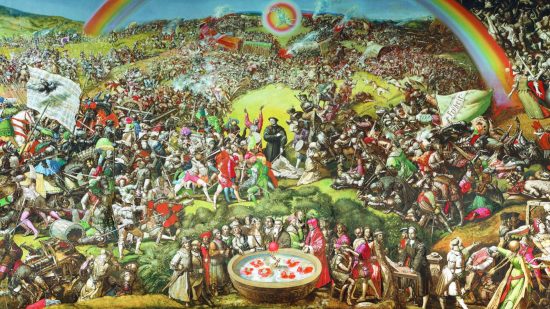
The Reformation: Religion, Revolution,
and the rise of the Bourgeoisie
Room: Sarah Fell
The Reformation: Religion, Revolution, and the rise of the Bourgeoisie
Room: Sarah Fell
Speaker: Joe Russell
“The long fight of the bourgeoisie against feudalism culminated in three great, decisive battles. The first was what is called the Protestant Reformation…” – Friedrich Engels
When Martin Luther pinned his Ninety-Five Theses to the door of a church, he set in motion a struggle on a scale he neither foresaw nor intended. What began as a theological debate over doctrine quickly escalated into an ideological battle against the Roman Catholic Church — and from there, a wave of revolutions, wars, and civil wars. This explosive chapter of history shook Europe to its core and changed the world forever.
It marked a huge step in the masses’ struggle against feudalism by breaking the ideological dictatorship of the Catholic Church. This struggle opened the floodgates for radical new ideas, the Enlightenment, the rise of modern science, and the revolutions that followed.
In this talk, Joe Russell, member of the RCP Executive Committee, will examine this revolutionary period as a key case study in historical materialism. How do changes in the economic base of society affect the realm of ideas, including religion? And how, in turn, can such ideas become the most powerful weapon in the struggle to change the world?
“The long fight of the bourgeoisie against feudalism culminated in three great, decisive battles. The first was what is called the Protestant Reformation…” – Friedrich Engels
When Martin Luther nailed his Ninety-Five Theses to the door of a church, he set in motion a struggle on a scale he neither foresaw nor intended. What began as a theological debate over doctrine escalated into an ideological battle against the Roman Catholic Church — and from there, a wave of revolutions, wars, and civil wars. This shook Europe to its core and changed the world forever.
It marked a huge step in the masses’ struggle against feudalism, by breaking the ideological dictatorship of the Catholic Church. It opened the floodgates for radical new ideas, the Enlightenment, the rise of modern science, and the revolutions that followed.
In this talk, Joe Russell, member of the RCP Executive Committee, will examine this revolutionary period as a case study in historical materialism. How do changes in the economic base of society affect the realm of ideas, including religion? And how, in turn, can such ideas become the most powerful weapon in the struggle to change the world?
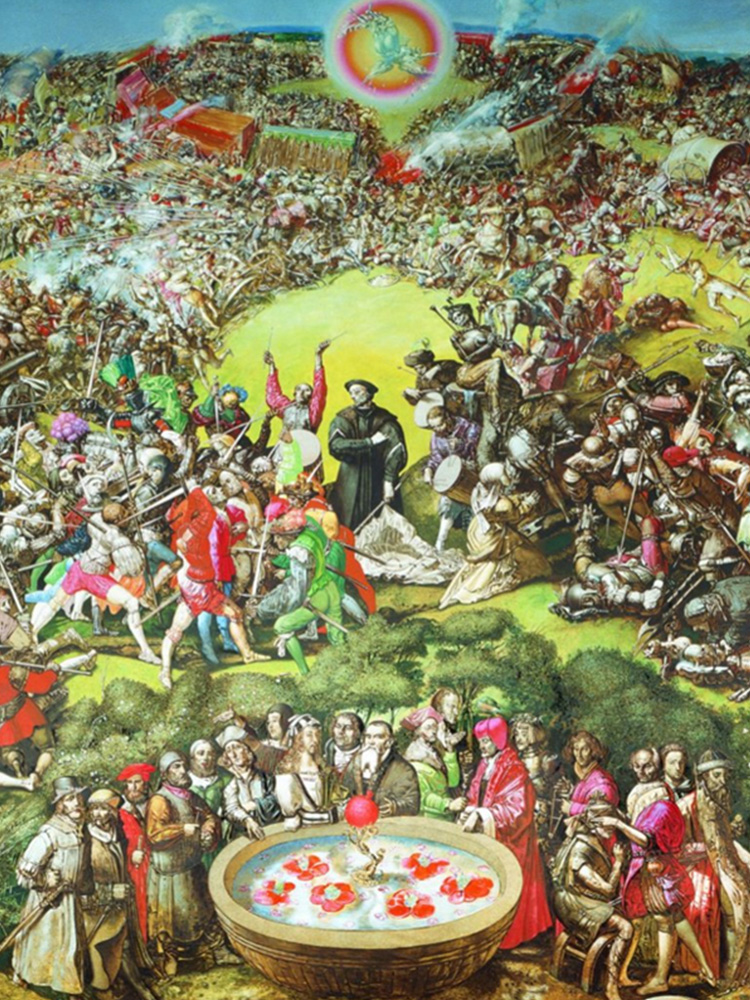
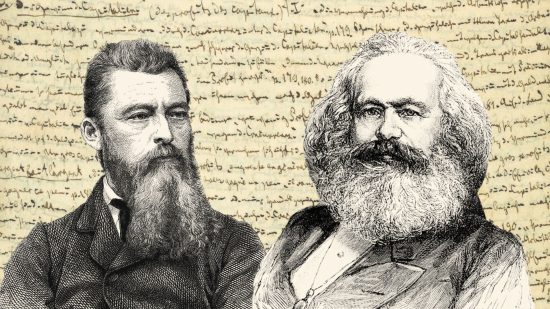
Feuerbach, philosophy, and the birth
of Marxism
Room: Ada Salter
Feuerbach, philosophy, and the birth of Marxism
Room: Ada Salter
Speaker: Nye Shaw
Dialectical materialism, the philosophy of Marxism, did not fall from the sky. Nor was it simply a good idea that Marx came up with one afternoon. As Marxists, we owe an immense debt to the philosophers of the past, in particular the German idealist Hegel.
Before Marx became a Marxist, he was a student of Hegel and was part of a group known as the Young Hegelians, who saw in Hegelian philosophy a revolutionary method for understanding the world.
This talk will explore the contributions of Hegel and the Young Hegelians to the development of philosophy. In particular, it will focus on the work of Ludwig Feuerbach, whose critique of Hegel pointed the way forward, even if it ultimately failed to reach a revolutionary conclusion. Among the Young Hegelians, it was Marx and Engels alone who fully grasped the revolutionary essence of Hegel’s philosophy.
In this talk, Nye Shaw, leading member of the RCP, will explain what set these two giants apart from the rest and how, on this basis, the revolutionary philosophy of Marxism was born.
Dialectical materialism, the philosophy of Marxism, did not fall from the sky. Nor was it simply a good idea that Marx came up with one afternoon. As Marxists, we owe an immense debt to the philosophers of the past, in particular the German idealist Hegel.
Before Marx became a Marxist, he was a student of Hegel and was part of a group known as the Young Hegelians, who saw in Hegelian philosophy a revolutionary method for understanding the world.
This talk will explore the contributions of Hegel and the Young Hegelians to the development of philosophy. In particular, it will focus on the work of Ludwig Feuerbach, whose critique of Hegel pointed the way forward, even if it ultimately failed to reach a revolutionary conclusion. Among the Young Hegelians, it was Marx and Engels alone who fully grasped the revolutionary essence of Hegel’s philosophy.
In this talk, Nye Shaw, leading member of the RCP, will explain what set these two giants apart from the rest and how, on this basis, the revolutionary philosophy of Marxism was born.


1945: Liberation, revolution,
and betrayal
Room: Hilda Clark
1945: Liberation, revolution, and betrayal
Room: Hilda Clark
Speaker: James Kilby
A revolutionary wave swept across Europe towards the end of the Second World War.
In France, communists formed the backbone of the armed resistance to fascism. In Italy, workers occupied the factories, peasants seized the land, and communists led a mass, armed partisan force. In Greece, the Communist Party led the resistance movement and stood in a strong position to take power.
But in all these countries, capitalism survived.
In this session, James Kilby, member of the RCP Central Committee, will examine the revolutionary processes that unfolded in the closing stages of the war. He will explain how and why the Stalinists, in one country after another, betrayed these incredible movements, setting back the world revolution by decades.
A revolutionary wave swept across Europe towards the end of the Second World War.
In France, communists formed the backbone of the armed resistance to fascism. In Italy, workers occupied the factories, peasants seized the land, and communists led a mass, armed partisan force. In Greece, the Communist Party led the resistance movement and stood in a strong position to take power.
But in all these countries, capitalism survived.
In this session, James Kilby, member of the RCP Central Committee, will examine the revolutionary processes that unfolded in the closing stages of the war. He will explain how and why the Stalinists, in one country after another, betrayed these incredible movements, setting back the world revolution by decades.
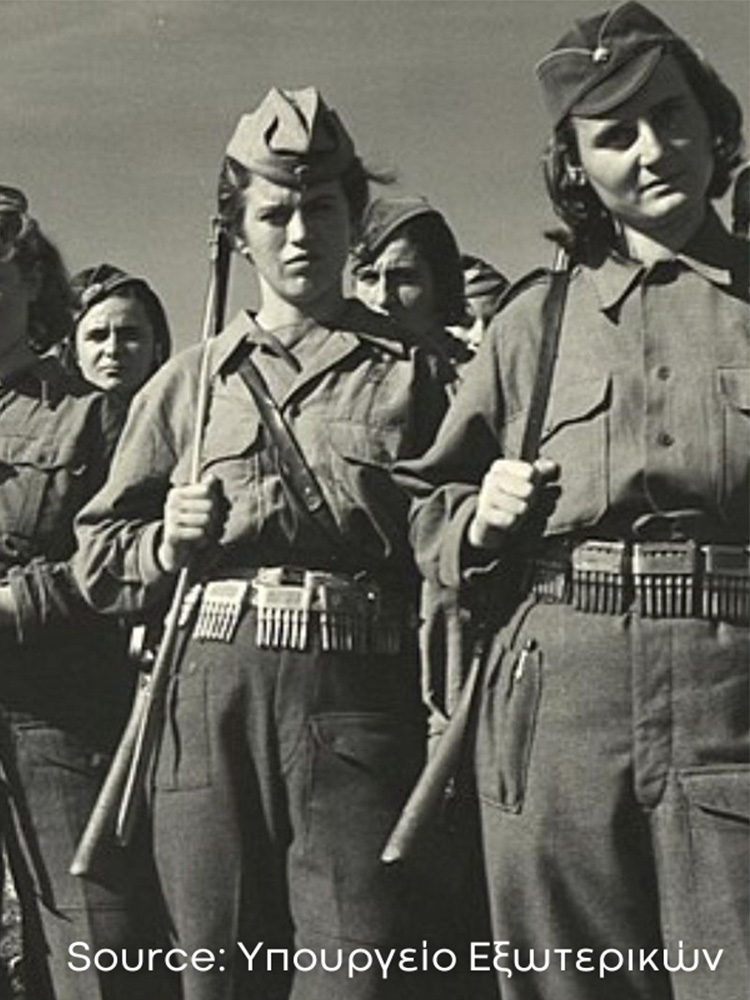
————————————————-
Late afternoon sessions
15:15 - 17:00
Late afternoon sessions
15:15 - 17:00
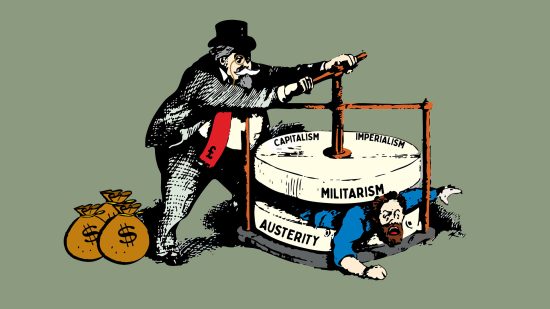
Monopolies and imperialism: How
big corporations dominate our lives
Room: The Light (main auditorium)
Monopolies and imperialism: How big
corporations dominate our lives
Room: The Light (main auditorium)
Speaker: Adam Booth
Capitalism is often portrayed as the provider of ‘freedom’ and ‘choice’. But this is a complete myth. From the minute we wake up to the moment we go to sleep; from birth to death: our lives are dominated by monopolies – by gigantic corporations that control huge chunks of their respective industries. Today, capitalism means BIG: Big Oil; Big Pharma; Big Tech; Big Food; the big banks – and so on. And they keep getting bigger.
Over one hundred years ago, in his masterpiece Imperialism: The Highest Stage of Capitalism, Lenin explained how the interests of the major monopolies and financial institutions leads to competition for markets, resources, and spheres of influence – and, in turn, to war, conflict, and protectionism.
In this talk, Adam Booth, RCP Executive Committee member, discusses how the forces of monopoly capitalism and imperialism are shaping the world economy and society in modern times: from the chaos of the AI race; to the turbulence of the trade war; to the stagnation of science, innovation, and technology.
Capitalism is often portrayed as the provider of ‘freedom’ and ‘choice’. But this is a complete myth. From the minute we wake up to the moment we go to sleep; from birth to death: our lives are dominated by monopolies – by gigantic corporations that control huge chunks of their respective industries. Today, capitalism means BIG: Big Oil; Big Pharma; Big Tech; Big Food; the big banks – and so on. And they keep getting bigger.
Over one hundred years ago, in his masterpiece Imperialism: The Highest Stage of Capitalism, Lenin explained how the interests of the major monopolies and financial institutions leads to competition for markets, resources, and spheres of influence – and, in turn, to war, conflict, and protectionism.
In this talk, Adam Booth, RCP Executive Committee member, discusses how the forces of monopoly capitalism and imperialism are shaping the world economy and society in modern times: from the chaos of the AI race; to the turbulence of the trade war; to the stagnation of science, innovation, and technology.
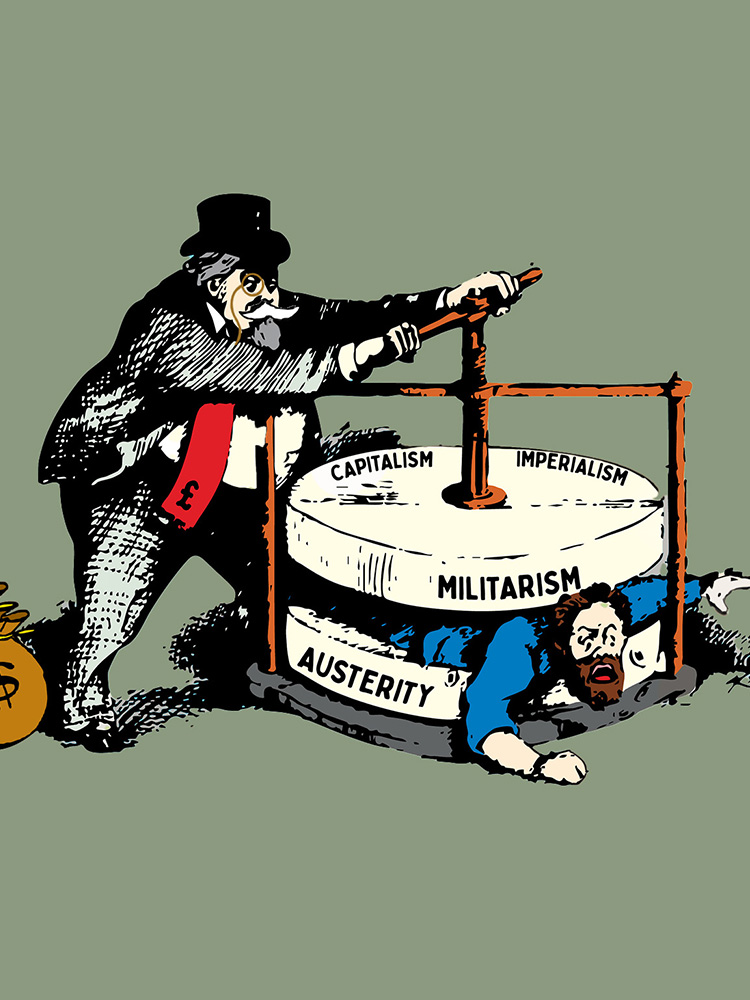
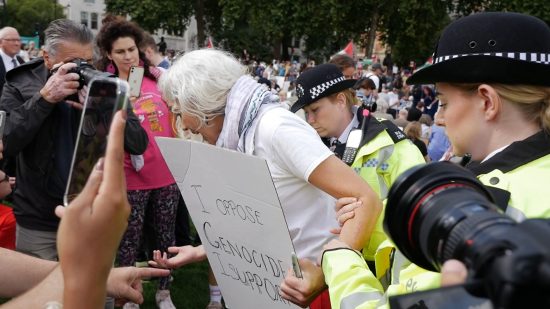
Free speech and repression: Can
capitalism still afford democracy?
Room: Benjamin Lay
Free speech and repression: Can capitalism
still afford democracy?
Room: Benjamin Lay
Speaker: Nelson Wan
Bourgeois governments across the world, including in the UK, are increasingly cracking down on fundamental democratic rights, such as freedom of speech, and the right to assembly and protest. In many cases, these so-called democratic states are behaving more and more like militarised police forces in the scale and severity of their repression.
In this talk, Nelson Wan, member of the RCP Executive Committee, will explain why liberal democracy under capitalism has only ever been democracy for the rich. In a period of stagnant growth and capitalist crisis, like today, the ruling class can no longer afford free speech and democratic rights for all.
At the end of the day, formal democracy and equality before the law cannot conceal the deep material inequality on which capitalism and the state are built. That is why the proletariat must smash the bourgeois state and replace it with a workers’ state.
Bourgeois governments across the world, including in the UK, are increasingly cracking down on fundamental democratic rights, such as freedom of speech, and the right to assembly and protest. In many cases, these so-called democratic states are behaving more and more like militarised police forces in the scale and severity of their repression.
In this talk, Nelson Wan, member of the RCP Executive Committee, will explain why liberal democracy under capitalism has only ever been democracy for the rich. In a period of stagnant growth and capitalist crisis, like today, the ruling class can no longer afford free speech and democratic rights for all.
At the end of the day, formal democracy and equality before the law cannot conceal the deep material inequality on which capitalism and the state are built. That is why the proletariat must smash the bourgeois state and replace it with a workers’ state.
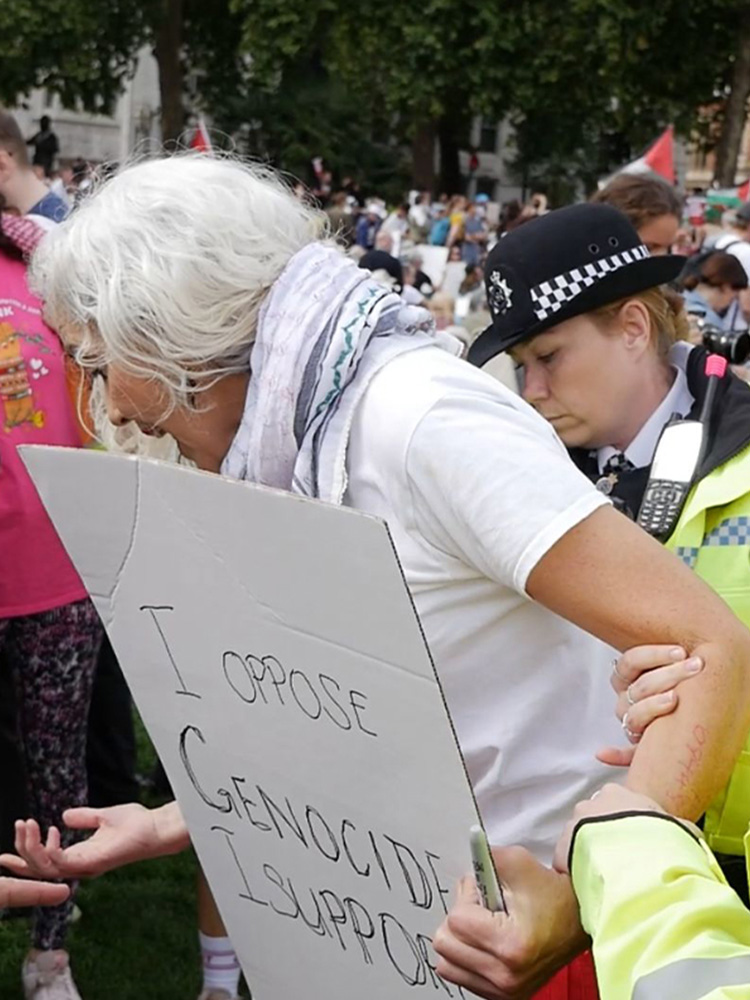

Hugo Chávez and the Bolivarian
Revolution
Room: Sarah Fell
Hugo Chávez and the Bolivarian Revolution
Room: Sarah Fell
Speaker: Jorge Martin
Right wingers often raise the legacy of Venezuela as an example that socialism and communism cannot work. However, the Bolivarian Revolution is rarely understood. Hugo Chavez, leading the Venezuelan masses, committed himself to a struggle against poverty, inequality and imperialism.
His strength in standing up to the Venezuelan ruling class, as well as US imperialists, led to massive sweeping reforms across the country which improved the lives of millions. The masses actively participated in the movement, including in factory occupations and workers’ control. In spite of this, the economy was still left in control of the capitalists, which resorted to sabotage, flight of capital and an investment strike. The situation was worsened by US sanctions and regime change attempts.
In this talk, Jorge Martin, RCI International Secretariat member, will discuss the real legacy of the Bolivarian Revolution, Chavez’s role and what those committed to a struggle against poverty, hunger and imperialism can learn from this incredible struggle.
Right wingers often raise the legacy of Venezuela as an example that socialism and communism cannot work. However, the Bolivarian Revolution is rarely understood. Hugo Chavez, leading the Venezuelan masses, committed himself to a struggle against poverty, inequality and imperialism.
His strength in standing up to the Venezuelan ruling class, as well as US imperialists, led to massive sweeping reforms across the country which improved the lives of millions. The masses actively participated in the movement, including in factory occupations and workers’ control. In spite of this, the economy was still left in control of the capitalists, which resorted to sabotage, flight of capital and an investment strike. The situation was worsened by US sanctions and regime change attempts.
In this talk, Jorge Martin, RCI International Secretariat member, will discuss the real legacy of the Bolivarian Revolution, Chavez’s role and what those committed to a struggle against poverty, hunger and imperialism can learn from this incredible struggle.


Progress, revolution, and reaction:
What drives history forward?
Room: Ada Salter
Progress, revolution, and reaction: What drives
history forward?
Room: Ada Salter
Speaker: Jack Tye Wilson
From the comfort of their cosy armchairs and university lecterns, the well-learned professors of bourgeois academia throw all manner of wild accusations at the Marxist view of history.
Fatalistic, teleological, economically deterministic, class reductionist, Messianic… there’s no end to the high-sounding mutilations that Marx’s ideas receive at the hands of their adversaries.
But these are all misunderstandings, distortions, and lies. The Marxist method of historical materialism is, in reality, the only way to understand the logic of history – which is driven by social relations, revolutionary upheavals, and class struggle.
In this talk, communist.red editor Jack Tye Wilson will uncover the profound insights that Marx and Engels offer into the historical process, and combat the false and one-sided interpretations their ideas have suffered over the years.
We will cover questions like: Is there such a thing as progress? Does Marxism reduce everything to economics? What about the role of ideas and individuals? And is the victory of communism inevitable?
From the comfort of their cosy armchairs and university lecterns, the well-learned professors of bourgeois academia throw all manner of wild accusations at the Marxist view of history.
Fatalistic, teleological, economically deterministic, class reductionist, Messianic… there’s no end to the high-sounding mutilations that Marx’s ideas receive at the hands of their adversaries.
But these are all misunderstandings, distortions, and lies. The Marxist method of historical materialism is, in reality, the only way to understand the logic of history – which is driven by social relations, revolutionary upheavals, and class struggle.
In this talk, communist.red editor Jack Tye Wilson will uncover the profound insights that Marx and Engels offer into the historical process, and combat the false and one-sided interpretations their ideas have suffered over the years.
We will cover questions like: Is there such a thing as progress? Does Marxism reduce everything to economics? What about the role of ideas and individuals? And is the victory of communism inevitable?
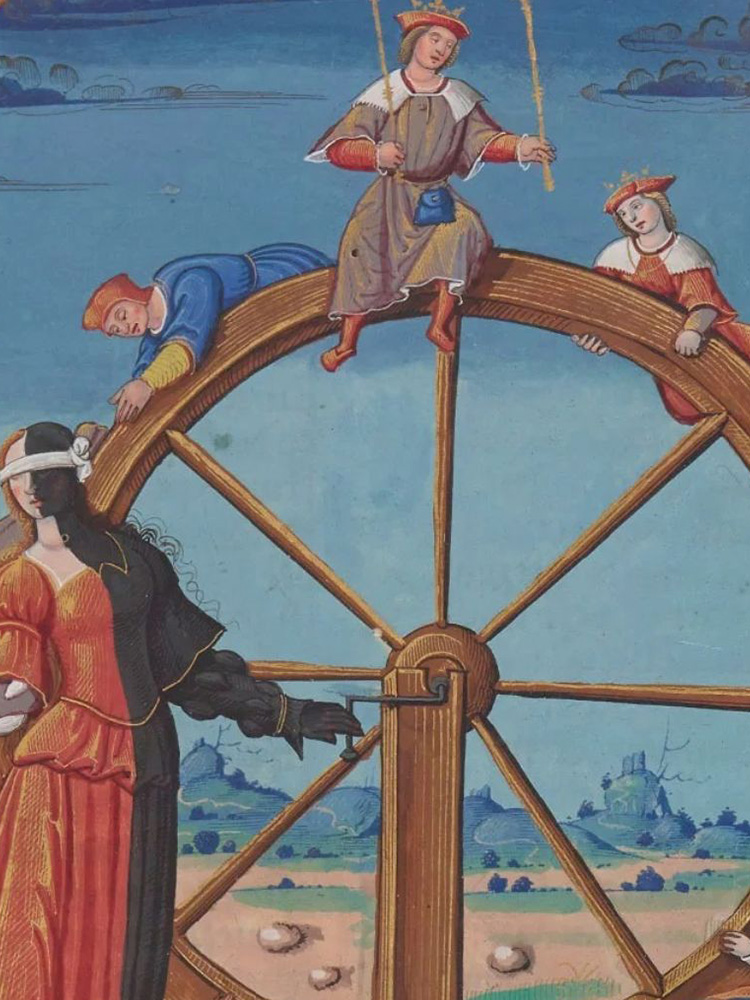
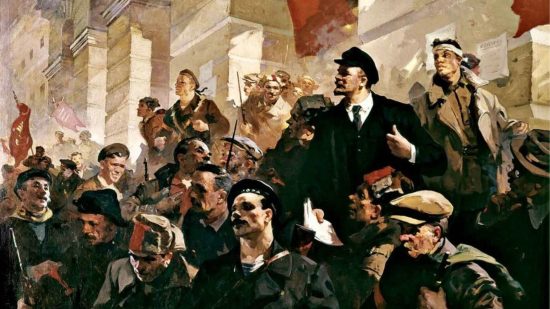
1917: How the Russian workers took
power
Room: Hilda Clark
1917: How the Russian workers took power
Room: Hilda Clark
Speaker: Georgina Ryan
In 1917, the Russian working class, under the leadership of Lenin and the Bolsheviks, changed the course of history. In less than a year, they courageously overthrew the repressive Tsarist regime and went on to challenge capitalism itself.
For the first time, the oppressed and exploited masses, having thrown off their chains, took control of society and began the monumental task of building a socialist system.
The titanic struggles of 1917 continue to inspire communists worldwide and offer vital lessons for our fight against capitalism today.
The Russian Revolution demonstrates how the working class can seize power, the importance of a revolutionary party and leadership, and the necessity of an international struggle.
In this talk, Georgina Ryan, member of the RCP Central Committee, will expose the lies and slander hurled at the revolution by defenders of the status quo for over 100 years.
In 1917, the Russian working class, under the leadership of Lenin and the Bolsheviks, changed the course of history. In less than a year, they courageously overthrew the repressive Tsarist regime and went on to challenge capitalism itself.
For the first time, the oppressed and exploited masses, having thrown off their chains, took control of society and began the monumental task of building a socialist system.
The titanic struggles of 1917 continue to inspire communists worldwide and offer vital lessons for our fight against capitalism today.
The Russian Revolution demonstrates how the working class can seize power, the importance of a revolutionary party and leadership, and the necessity of an international struggle.
In this talk, Georgina Ryan, member of the RCP Central Committee, will expose the lies and slander hurled at the revolution by defenders of the status quo for over 100 years.
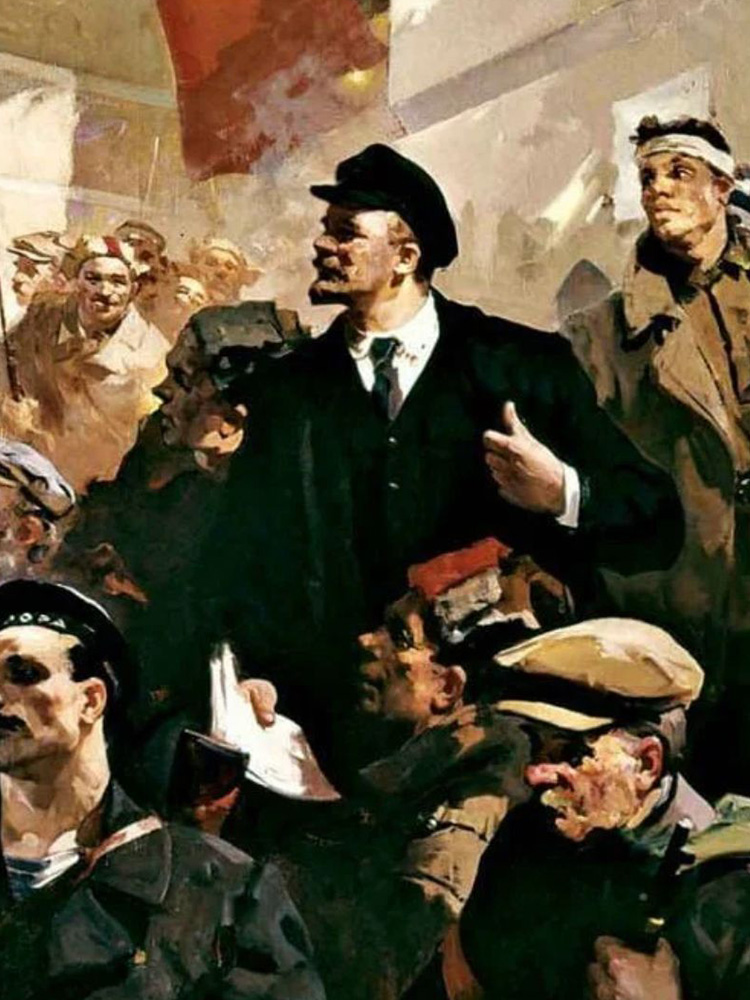
————————————————-
Evening plenary session
17:15 - 19:00
Evening plenary session
17:15 - 19:00

The decline of British capitalism and the
British revolution
Room: The Light (main auditorium)
The decline of British capitalism and the
British revolution
Room: The Light (main auditorium)
Speaker: Rob Sewell
Nearly a century ago, Trotsky said that the British ruling class used to be able to see in centuries and continents, but now they can barely see past the end of their own noses. Both of the traditional parties in British politics are crumbling, unable to balance the books for the capitalist class while also appealing to workers. Keir Starmer’s rating is dropping by the day.
Instead, new parties like Reform, the Greens, and the possibility of a new left party around Jeremy Corbyn and Zarah Sultana are being seen as alternatives to challenge the status quo.
At the same time, millions of people are taking to the streets for Palestine, reflecting not only the anger at this genocide but also the deep rot in British society in general.
Increasingly, young people in Britain are turning to revolutionary ideas. They are watching the Gen Z revolutions across the world and asking: how can we do something like this in Britain?
In this talk, Rob Sewell, member of the RCP Executive Committee, will discuss the crisis of British capitalism, the coming British revolution, and the role of communists in preparing for it.
Sunday 16th November
Sunday 16th November
Morning sessions
10:00 - 11:45
Morning sessions
10:00 - 11:45

A history of Palestinian resistance
Room: The Light (main auditorium)
A history of Palestinian resistance
Room: The Light (main auditorium)
Speaker: Khaled Malachi
Whoever hypocritically condemns the poor and oppressed from rising up to break their chains is a defender of the existing order. For communists, the Palestinian struggle is a major source of inspiration. But for those who really support the resistance of the Palestinian people, viewing it as an indispensable part of the future Arab revolution, it is not enough to romanticise the movements of the past and present, but to draw out lessons.
In this talk, Khaled Malachi, RCP Central Committee member, will analyse the rise and fall of the Palestine Liberation Organisation: the movement that for two decades captured the imagination of the entire Arab world. The talk will explain why the PLO failed and betrayed the Palestinian cause, paving the way for the reaction found today.
Whoever hypocritically condemns the poor and oppressed from rising up to break their chains is a defender of the existing order. For communists, the Palestinian struggle is a major source of inspiration. But for those who really support the resistance of the Palestinian people, viewing it as an indispensable part of the future Arab revolution, it is not enough to romanticise the movements of the past and present, but to draw out lessons.
In this talk, Khaled Malachi, RCP Central Committee member, will analyse the rise and fall of the Palestine Liberation Organisation: the movement that for two decades captured the imagination of the entire Arab world. The talk will explain why the PLO failed and betrayed the Palestinian cause, paving the way for the reaction found today.

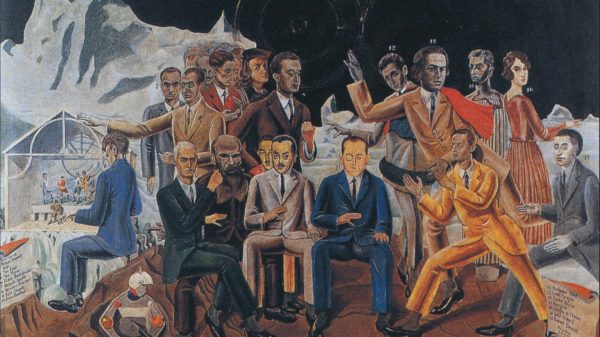
Surrealism and Marxism: Dreams, art, and
class struggle
Room: Benjamin Lay
Surrealism and Marxism: Dreams, art, and
class struggle
Room: Benjamin Lay
Speaker: Will Collins
In this talk, RCP Central Committee member Will Collins will discuss Surrealism and argue that to truly liberate the mind, a life and death struggle will have to be waged against the system that enslaves it, and commit to the building of a socialist society.
Surrealist artwork deals in the bizarre and the strange. On the surface, it can seem as if this is all it is, but it stands for something much deeper.
Surrealism grew out of the general feeling of malaise and anger that existed across Europe following the First World War, and, at the same time, the inspiration from the revolutionary events that swept Europe.
This revolutionary spirit reflected itself in surrealist art, which seeks to express a contradictory view of reality. It reveals the violence and savagery that lurks underneath the veneer of bourgeois civilization.
But really the essence of the surrealist movement was to liberate the artist from the shackles of ‘official’ culture, the state, church and even of the mind itself.
The surrealists were not at all armchair socialists, but actively involved in the communist movement.
In this talk, RCP Central Committee member Will Collins will discuss Surrealism and argue that to truly liberate the mind, a life and death struggle will have to be waged against the system that enslaves it, and commit to the building of a socialist society.
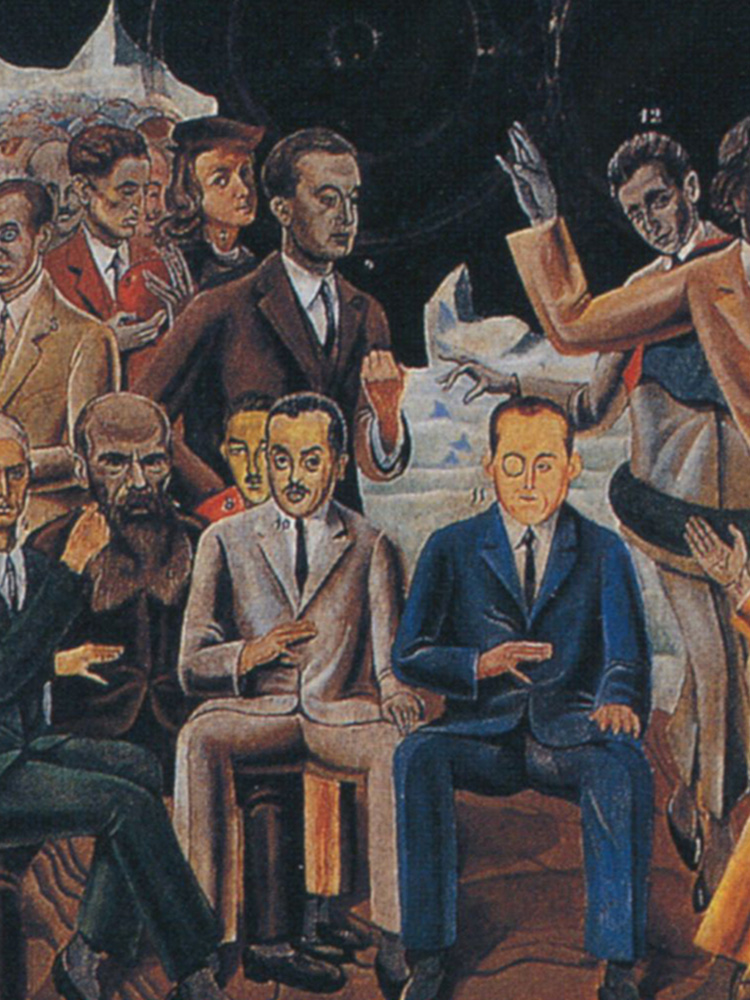
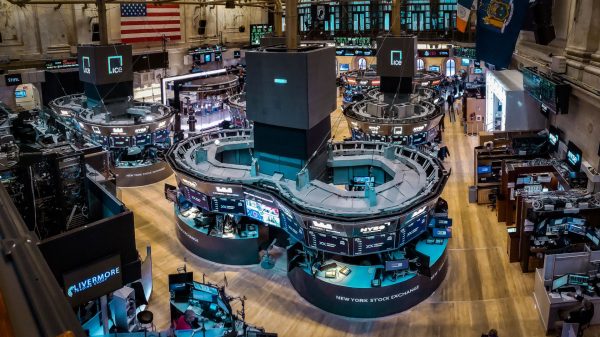
Bubbles, debt and speculation: Why capital is becoming fictitious
Room: Sarah Fell
Bubbles, debt, and speculation: Why capital is
becoming fictitious
Room: Sarah Fell
Speaker: Niklas Albin Svensson
While the economy is stagnating the stockmarket is booming. The workers are squeezed like never before and profits are at record highs. The multinational corpoartions have more money than they know what to do with while governments are indebted like never before. Inflation is stubbornly not coming down at the same time as the economy is entering recession.
For decades economists have insisted that we need to raise profits in order to grow the economy. That we needed to make investment more profitable. Yet, profits are at record highs, and investment at a record low. Instead the economy is saddled with insolvable contradictions.
Money now seem to be flowing everywhere except where it’s needed. What is it about capitalism that creates these bubbles, this mass of fictious wealth instead of real wealth? Niklas Albin Svensson from the International Secretariat of the RCI will explain how capitalism and the capitalists has become completely parastic and unable to take humanity forward.
While the economy is stagnating the stock market is booming. The workers are squeezed like never before and profits are at record highs. The multinational corporations have more money than they know what to do with while governments are indebted like never before. Inflation is stubbornly not coming down at the same time as the economy is entering recession.
For decades economists have insisted that we need to raise profits in order to grow the economy. That we needed to make investment more profitable. Yet, profits are at record highs, and investment at a record low. Instead the economy is saddled with insolvable contradictions.
Money now seem to be flowing everywhere except where it’s needed. What is it about capitalism that creates these bubbles, this mass of fictitious wealth instead of real wealth?
Niklas Albin Svensson from the International Secretariat of the RCI will explain how capitalism and the capitalists has become completely parasitic and unable to take humanity forward.


The Modern British state: Reform or
revolution?
Room: Ada Salter
The Modern British state: Reform or revolution?
Room: Ada Salter
Speaker: Ben Gliniecki
A deep hatred of the British state permeates among workers and youth today. Whether marching for Palestine, blocking roads to protest fossil fuel use, waving an English flag, on the bus, or at the pub, conversations are often filled with anger toward the British state.
Around 70% of the British public believe the country is heading in the wrong direction. The welfare state is crumbling, all political parties and most politicians have negative approval ratings, and the Metropolitan Police is constantly embroiled in scandals.
What is the answer? Can the British state be reformed to meet the needs of workers, or does it need to be overthrown?
In this talk, Ben Gliniecki, General Secretary of the RCP, will examine how the British state functions and explain whether reform is sufficient or if a British revolution is necessary.
A deep hatred of the British state permeates among workers and youth today. Whether marching for Palestine, blocking roads to protest fossil fuel use, waving an English flag, on the bus, or at the pub, conversations are often filled with anger toward the British state.
Around 70% of the British public believe the country is heading in the wrong direction. The welfare state is crumbling, all political parties and most politicians have negative approval ratings, and the Metropolitan Police is constantly embroiled in scandals.
What is the answer? Can the British state be reformed to meet the needs of workers, or does it need to be overthrown?
In this talk, Ben Gliniecki, General Secretary of the RCP, will examine how the British state functions and explain whether reform is sufficient or if a British revolution is necessary.

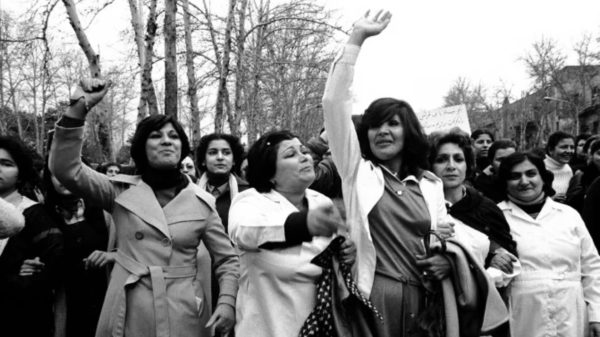
Capitalism and the oppression of women
Room: Hilda Clark
Capitalism and the oppression of women
Room: Hilda Clark
Speaker: Manon Powrie
While politicians today talk about ‘gender equality,’ conditions for women and girls across the world are worsening, with sexism, harassment, violence, and femicide becoming all too normal in society. But women have not always been in this position. Research shows that the patriarchal family structure, and the attitudes toward women we see today, have not always existed. Early human societies viewed women as equal to men and vital to the health of the community. It is not inherent in men’s nature to oppress women, but rather the rise of private property and the division of society into classes that required women’s oppression.
In this talk, Manon Powrie, leading member of the RCP, will address the fundamental question of what caused this shift between men and women, how women’s oppression arose, and why the struggle to free women from oppression is an essential part of the fight for socialist revolution.
While politicians today talk about ‘gender equality,’ conditions for women and girls across the world are worsening, with sexism, harassment, violence, and femicide becoming all too normal in society. But women have not always been in this position. Research shows that the patriarchal family structure, and the attitudes toward women we see today, have not always existed. Early human societies viewed women as equal to men and vital to the health of the community. It is not inherent in men’s nature to oppress women, but rather the rise of private property and the division of society into classes that required women’s oppression.
In this talk, Manon Powrie, leading member of the RCP, will address the fundamental question of what caused this shift between men and women, how women’s oppression arose, and why the struggle to free women from oppression is an essential part of the fight for socialist revolution.
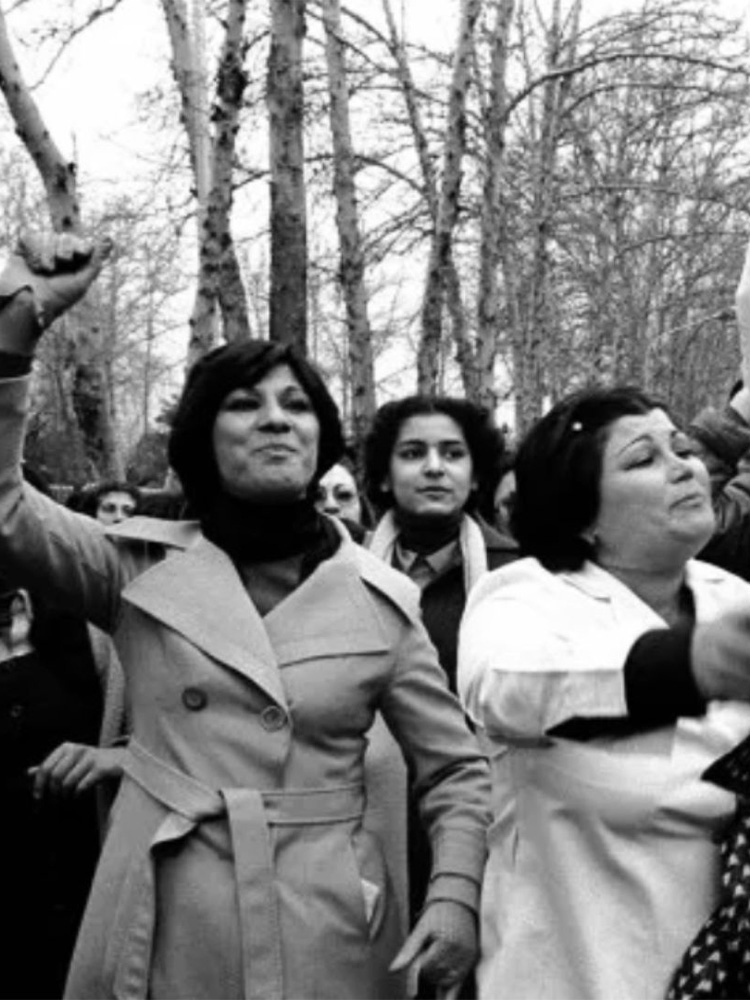
————————————————-
Early afternoon sessions
12:30 - 14:15
Early afternoon sessions
12:30 - 14:15
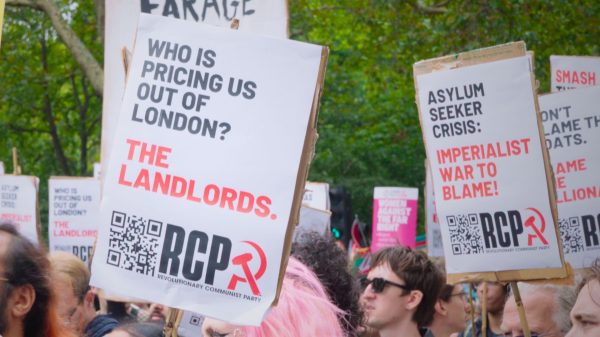
Migration and borders: The communist
position
Room: The Light (main auditorium)
Migration and borders: The communist position
Room: The Light (main auditorium)
Speaker: Fiona Lali
The question of immigration is dominating politics. Whipped up by demagogic politicians and mainstream media, a climate of hysteria has pushed the topic to the forefront. The 2024 General Election saw ‘stop the boats’ as a key issue, while Labour, the Conservatives and Reform debated who would be the most effective deporters. A summer of protests outside asylum seeker hotels, culminating in the largest far right demonstration by Tommy Robinson in decades in September means it is essential for the left to come out boldly with a clear class position. Communists defend open borders.
In this talk, Fiona Lali — Campaigns Coordinator of the RCP — will explain why and how the struggle to defend immigrants is in the interest of the working class.
The question of immigration is dominating politics. Whipped up by demagogic politicians and mainstream media, a climate of hysteria has pushed the topic to the forefront.
The 2024 General Election saw ‘stop the boats’ as a key issue, while Labour, the Conservatives and Reform debated who would be the most effective deporters. A summer of protests outside asylum seeker hotels, culminating in the largest far right demonstration by Tommy Robinson in decades in September means it is essential for the left to come out boldly with a clear class position. Communists defend open borders.
In this talk, Fiona Lali — Campaigns Coordinator of the RCP — will explain why and how the struggle to defend immigrants is in the interest of the working class.
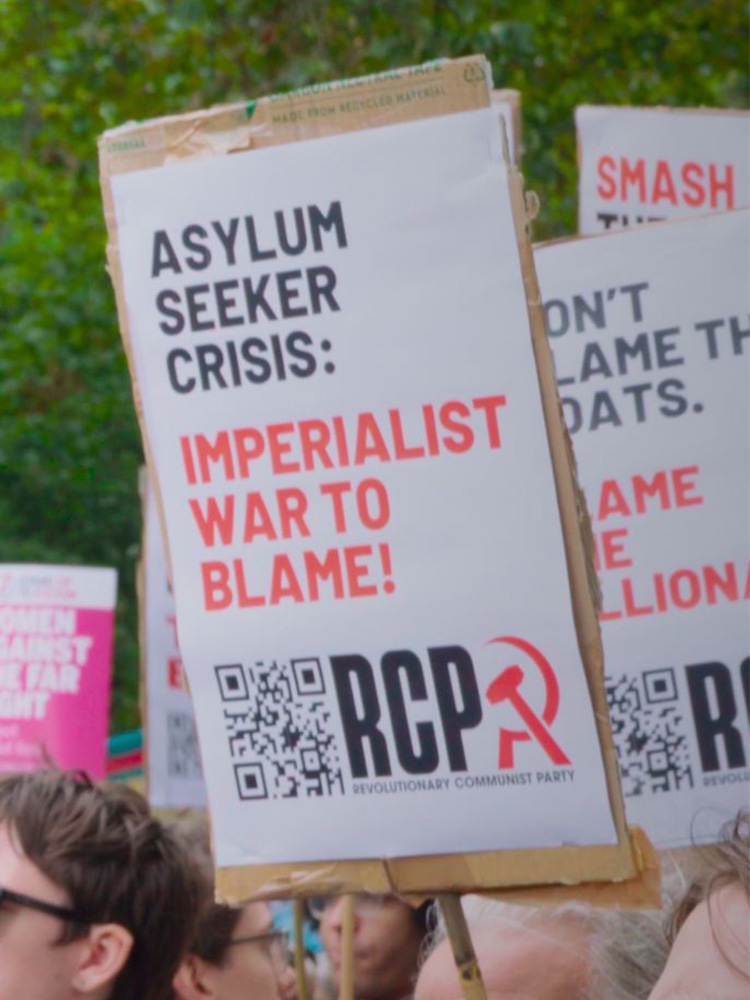
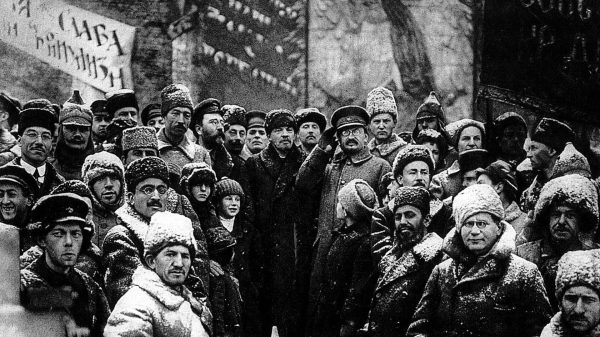
How to build a revolutionary party — and
how not to
Room: Benjamin Lay
How to build a revolutionary party — and how not to
Room: Benjamin Lay
Speaker: Lotta Angantyr
In 1938, Trotsky wrote: “The world political situation as a whole is chiefly characterized by a historical crisis of the leadership of the proletariat.”
These words are as true now as they were then. The objective conditions for revolution are maturing in country after country. What is needed is a leadership that can take advantage of the situation.
The role of the revolutionary party is to function as the historic memory of the working class, that has learnt the lessons from past movements, and can in a decisive way put forward the ideas of socialist revolution and how to achieve it.
The building of the party has therefore been a central question within the communist movement since its very beginning.
In this session, Lotta Angantyr, RCP Executive Committee member, will speak on the ideas, methods and traditions that the Revolutionary Communist Party bases itself on and how we can build the party capable of leading the working class to victory.
In 1938, Trotsky wrote: “The world political situation as a whole is chiefly characterized by a historical crisis of the leadership of the proletariat.”
These words are as true now as they were then. The objective conditions for revolution are maturing in country after country. What is needed is a leadership that can take advantage of the situation.
The role of the revolutionary party is to function as the historic memory of the working class, that has learnt the lessons from past movements, and can in a decisive way put forward the ideas of socialist revolution and how to achieve it.
The building of the party has therefore been a central question within the communist movement since its very beginning.
In this session, Lotta Angantyr, RCP Executive Committee member, will speak on the ideas, methods and traditions that the Revolutionary Communist Party bases itself on and how we can build the party capable of leading the working class to victory.
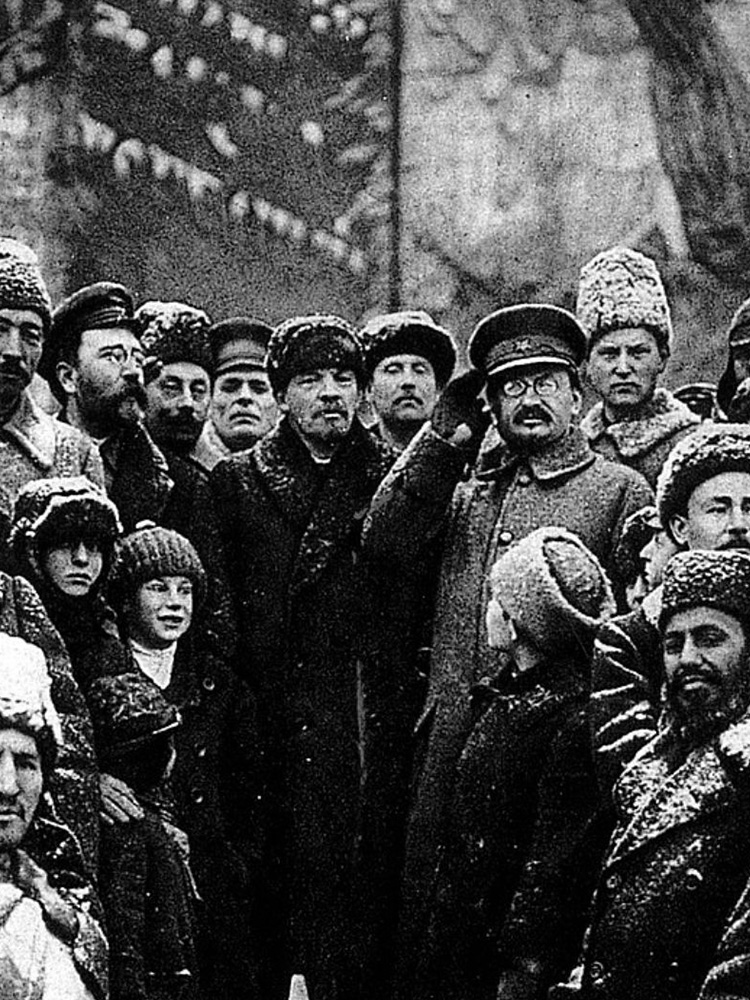
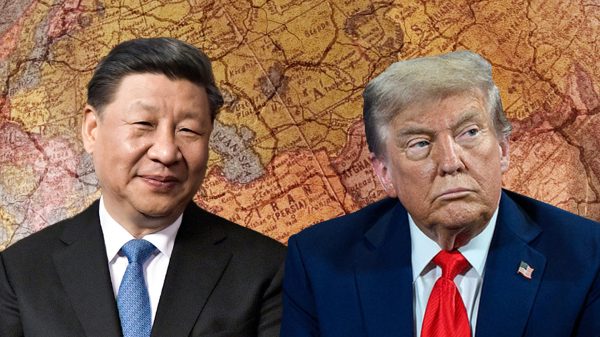
Should communists welcome a
'multipolar' world?
Room: Sarah Fell
Should communists welcome a 'multipolar' world?
Room: Sarah Fell
Speaker: Hamid Alizadeh
In the wake of World War Two, US imperialism forged a new international order in its interests, built upon pillars such as the United Nations, the NATO security alliance, multilateral free trade agreements, and the Bretton Woods dollar-based monetary and financial system.
In recent years and decades, however, US imperialism has undergone a relative decline. Other powers, such as China and Russia, meanwhile, have risen up and begun to exert a greater influence on the world stage.
As the tectonic plates of world relations shift, the edifice of the postwar order is beginning to crumble. American hegemony is increasingly being challenged, giving way to a new era of ‘multipolarity’, with increasing tensions and conflicts between the big imperialist powers.
In this talk, Hamid Alizadeh – host of the Against the Stream podcast and member of the International Secretariat of the Revolutionary Communist International – examines the ongoing military, economic, and diplomatic clashes taking place globally, and discusses whether a multipolar world represents a progressive step forward for the working class.
In the wake of World War Two, US imperialism forged a new international order in its interests, built upon pillars such as the United Nations, the NATO security alliance, multilateral free trade agreements, and the Bretton Woods dollar-based monetary and financial system.
In recent years and decades, however, US imperialism has undergone a relative decline. Other powers, such as China and Russia, meanwhile, have risen up and begun to exert a greater influence on the world stage.
As the tectonic plates of world relations shift, the edifice of the postwar order is beginning to crumble. American hegemony is increasingly being challenged, giving way to a new era of ‘multipolarity’, with increasing tensions and conflicts between the big imperialist powers.
In this talk, Hamid Alizadeh – host of the Against the Stream podcast and member of the International Secretariat of the Revolutionary Communist International – examines the ongoing military, economic, and diplomatic clashes taking place globally, and discusses whether a multipolar world represents a progressive step forward for the working class.
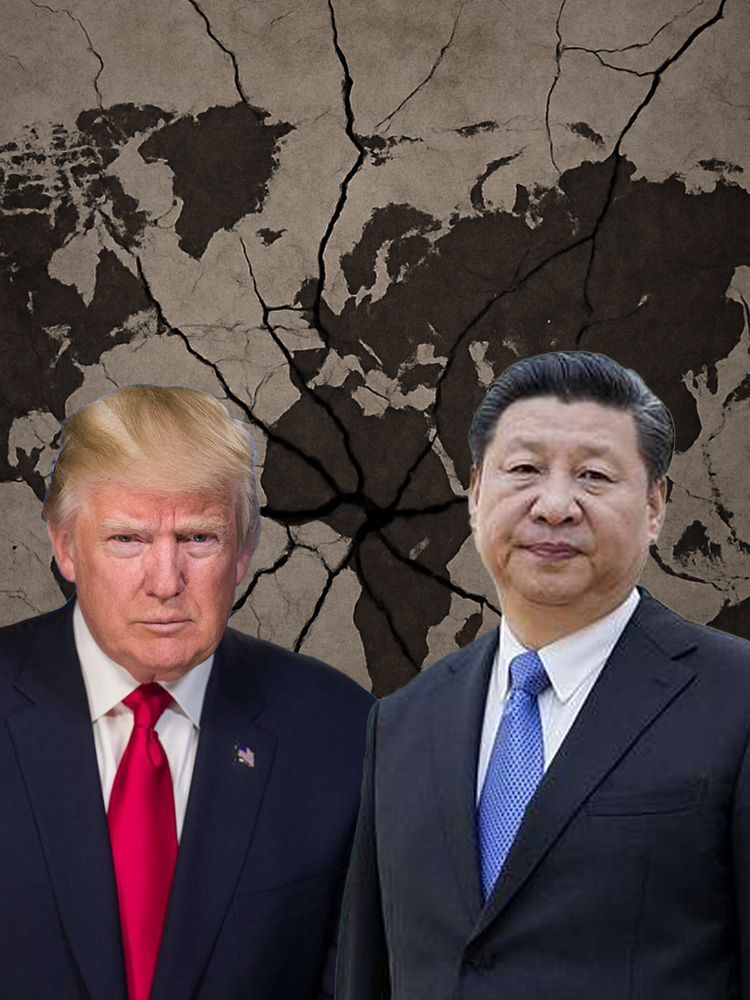
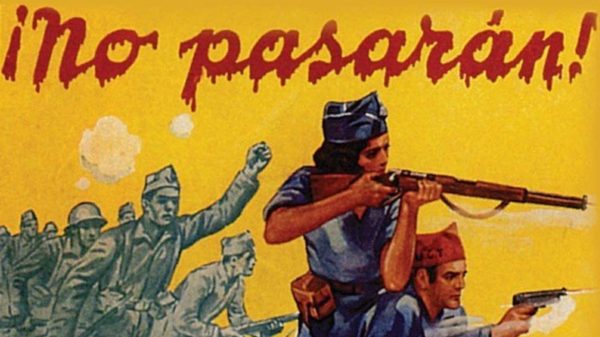
Civil war and revolution in Spain: 1931-1939
Room: Ada Salter
Civil war and revolution in Spain: 1931-1939
Room: Ada Salter
Speaker: Jack Halinski Fitzpatrick
Between 1931 and 1939, the Spanish workers could have taken power many times. However, betrayed by their leaders, eventually Franco’s brutal fascist forces were able to defeat the revolution, installing a vicious dictatorship for four decades.
During this period, anarchism, stalinism, left and right reformism as well as centrism were all shown not to be up to the task. The forces of genuine Marxism, remaining small and isolated from the movement, were unable to affect the course of events.
Today, we are living through a similar period of war, revolution and counterrevolution.
In this talk, Jack Halinski Fitzpatrick, leading member of the RCP, will discuss how we can honour the memory and fighting spirit of the Spanish workers and peasants by learning from the defeats of the past to prepare the victories of the future.
Between 1931 and 1939, the Spanish workers could have taken power many times. However, betrayed by their leaders, eventually Franco’s brutal fascist forces were able to defeat the revolution, installing a vicious dictatorship for four decades.
During this period, anarchism, stalinism, left and right reformism as well as centrism were all shown not to be up to the task. The forces of genuine Marxism, remaining small and isolated from the movement, were unable to affect the course of events.
Today, we are living through a similar period of war, revolution and counterrevolution.
In this talk, Jack Halinski Fitzpatrick, leading member of the RCI, will discuss how we can honour the memory and fighting spirit of the Spanish workers and peasants by learning from the defeats of the past to prepare the victories of the future.
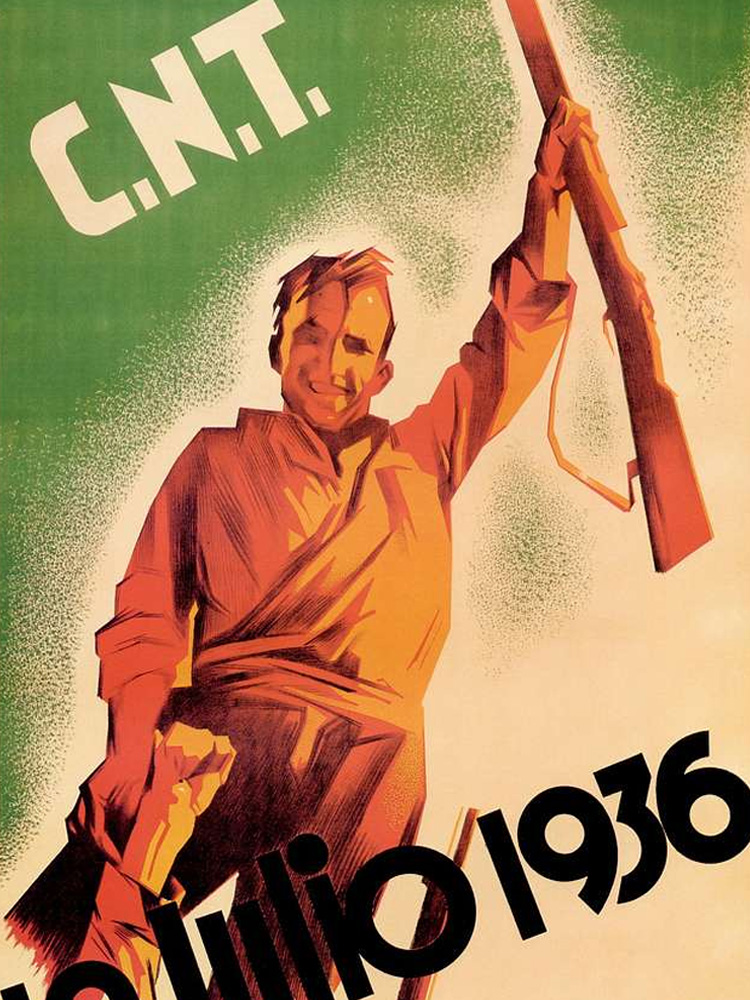

Defying US imperialism: Fidel Castro and
the Cuban Revolution
Room: Hilda Clark
Defying US imperialism: Fidel Castro and
the Cuban Revolution
Room: Hilda Clark
Speaker: Keelan Kellegher
The Cuban Revolution stands as one of the most revered uprisings in the history of capitalism. Fidel Castro and Che Guevara began as anti-imperialists and did not initially see the revolution as socialist.
However, during the course of the struggle, they realized that defeating imperialism required also confronting capitalism. With this understanding, they heroically ended capitalism on the island, leading to a long list of gains for Cuban workers.
As the fight against imperialism gains new importance today, the lessons of the Cuban Revolution are essential study for anyone seeking to end the barbarism created by imperialism.
In this talk, Keelan Kellegher, member of the RCP Central Committee, will draw out the key lessons of the Cuban Revolution and explain the most important insights we can learn from this inspiring event.
The Cuban Revolution stands as one of the most revered uprisings in the history of capitalism. Fidel Castro and Che Guevara began as anti-imperialists and did not initially see the revolution as socialist.
However, during the course of the struggle, they realized that defeating imperialism required also confronting capitalism. With this understanding, they heroically ended capitalism on the island, leading to a long list of gains for Cuban workers.
As the fight against imperialism gains new importance today, the lessons of the Cuban Revolution are essential study for anyone seeking to end the barbarism created by imperialism.
In this talk, Keelan Kellegher, member of the RCP Central Committee, will draw out the key lessons of the Cuban Revolution and explain the most important insights we can learn from this inspiring event.

————————————————-
Late afternoon sessions
14:30 - 16:15
Late afternoon sessions
14:30 - 16:15

Ibrahim Traore, Sankara's legacy, and the
fight against imperialism in West Africa
Room: The Light (main auditorium)
Ibrahim Traore, Sankara's legacy, and the
fight against imperialism in West Africa
Room: The Light (main auditorium)
Speaker: Josh Holroyd
Since he came to power in September 2022, the leader of Burkina Faso’s military government, Ibrahim Traore, has attracted attention all over the world.
Echoing Thomas Sankara, the leader of the Burkinabé Revolution of 1983-87, Traore has used radical anti-imperialist and pan-Africanist rhetoric, calling for a determined struggle for genuine sovereignty and development for the people of Africa.
In the Western media, Traore is often portrayed as a brutal dictator, who is rapidly losing control of the situation. However, on social media, you can find a huge amount of support for Traore and his programme. What is the reality?
In this talk, Josh Holroyd, leading member of the RCI, will discuss what has been achieved in Burkina Faso since Traore came to power, and the way forward for the fight against imperialism in West Africa.
Since he came to power in September 2022, the leader of Burkina Faso’s military government, Ibrahim Traore, has attracted attention all over the world.
Echoing Thomas Sankara, the leader of the Burkinabé Revolution of 1983-87, Traore has used radical anti-imperialist and pan-Africanist rhetoric, calling for a determined struggle for genuine sovereignty and development for the people of Africa.
In the Western media, Traore is often portrayed as a brutal dictator, who is rapidly losing control of the situation. However, on social media, you can find a huge amount of support for Traore and his programme. What is the reality?
In this talk, Josh Holroyd, leading member of the RCI, will discuss what has been achieved in Burkina Faso since Traore came to power, and the way forward for the fight against imperialism in West Africa.

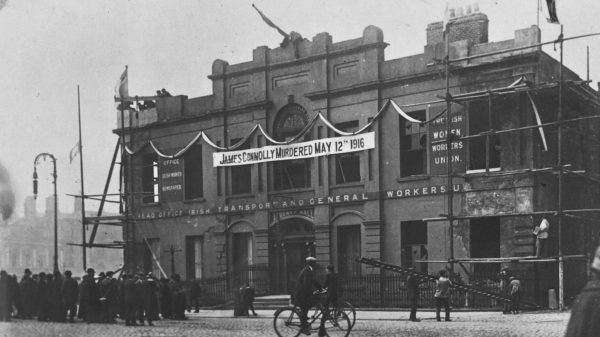
Republicanism and revolution: The Easter
Rising of 1916
Room: Benjamin Lay
Republicanism and revolution: The Easter
Rising of 1916
Room: Benjamin Lay
Speaker: Orla Thomas
The Easter Rising of 1916 is one of the most inspiring events in Irish revolutionary history. The rising saw Europe’s first Red Army, the Irish Citizen’s Army, fight the forces of British Imperialisma on the streets of Dublin and sacrifice their lives for the cause of a free Ireland for the Irish workers and poor.
When Lenin got news of the Rising, he criticised those who wrote it off as a ‘putsch’ saying ‘Whoever expects a ‘pure’ social revolution will never live to see it. Such a person pays lip-service to revolution without understanding what revolution is.’ These comments still ring true today with the history of the rising falling victim to all kinds of distortions.
In this talk, Orla Thomas, RCO Central Committee member, will set the record straight on the history of the Rising, discuss its lessons , and explain the importance of the Irish national question for communists in Britain today.
The Easter Rising of 1916 is one of the most inspiring events in Irish revolutionary history. The rising saw Europe’s first Red Army, the Irish Citizen’s Army, fight the forces of British Imperialisma on the streets of Dublin and sacrifice their lives for the cause of a free Ireland for the Irish workers and poor.
When Lenin got news of the Rising, he criticised those who wrote it off as a ‘putsch’ saying ‘Whoever expects a ‘pure’ social revolution will never live to see it. Such a person pays lip-service to revolution without understanding what revolution is.’ These comments still ring true today with the history of the rising falling victim to all kinds of distortions.
In this talk, Orla Thomas, RCO Central Committee member, will set the record straight on the history of the Rising, discuss its lessons , and explain the importance of the Irish national question for communists in Britain today.
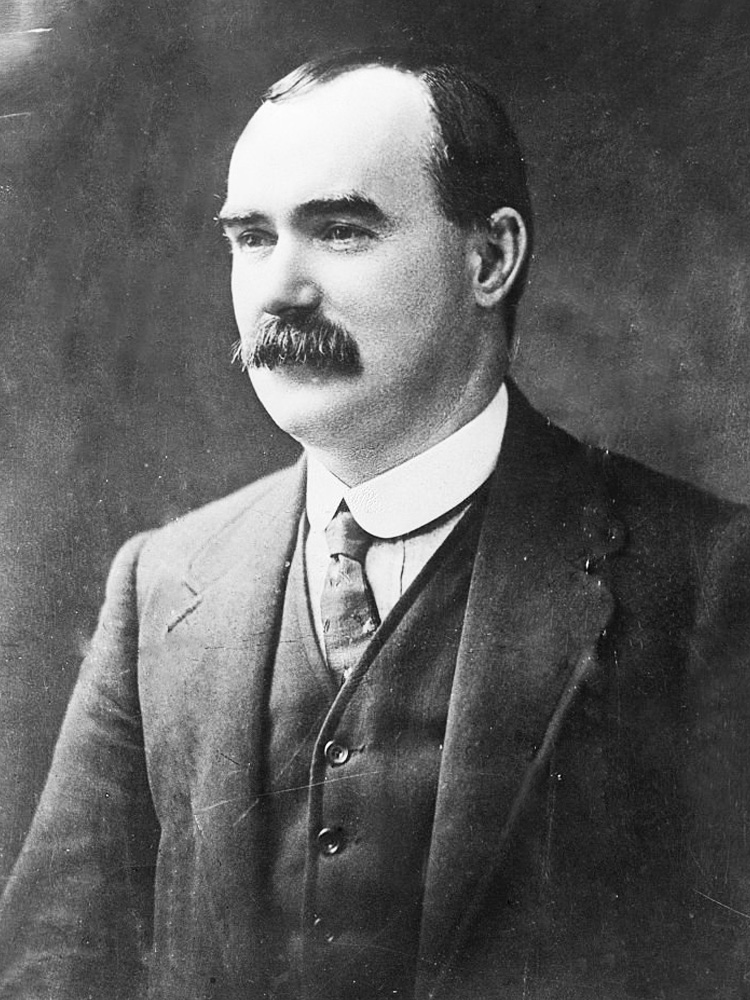
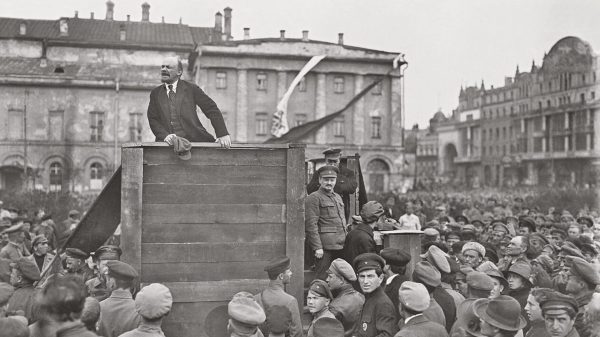
Lenin and Trotsky: What they really stood
for — a reply to Stalinist slanders
Room: Sarah Fell
Lenin and Trotsky: What they really stood
for — a reply to Stalinist slanders
Room: Sarah Fell
Speaker: Olivia Ruadh
This is not just a debate between long-dead figures, but an application of genuine Marxism to the history of the revolutionary movements of the twentieth century and a demonstration of how these debates, both theoretical and tactical, remain directly relevant to the struggles of today.
Stalinist ideas rested on an anti-Marxist worldview, rooted in the privileged position of the Soviet bureaucracy. In defending this outlook, Stalin and his allies tried to manufacture a split between Lenin and Trotsky. In reality, it was Stalin and his collaborators who consistently sought to hold back revolutionary movements of the working class, failed to mount a serious fight against the rise of fascism, and ultimately paved the way for capitalist restoration in the USSR and beyond.
In this talk, Olive Ruadh, RCP Central Committee member will explain that, politically, Lenin and Trotsky had far more in common with each other than with Stalin. Only Trotskyism carried forward the genuine banner of Marxism after Lenin’s death.
This is not just a debate between long-dead figures, but an application of genuine Marxism to the history of the revolutionary movements of the twentieth century and a demonstration of how these debates, both theoretical and tactical, remain directly relevant to the struggles of today.
Stalinist ideas rested on an anti-Marxist worldview, rooted in the privileged position of the Soviet bureaucracy. In defending this outlook, Stalin and his allies tried to manufacture a split between Lenin and Trotsky. In reality, it was Stalin and his collaborators who consistently sought to hold back revolutionary movements of the working class, failed to mount a serious fight against the rise of fascism, and ultimately paved the way for capitalist restoration in the USSR and beyond.
In this talk, Olive Ruadh, RCP Central Committee member will explain that, politically, Lenin and Trotsky had far more in common with each other than with Stalin. Only Trotskyism carried forward the genuine banner of Marxism after Lenin’s death.
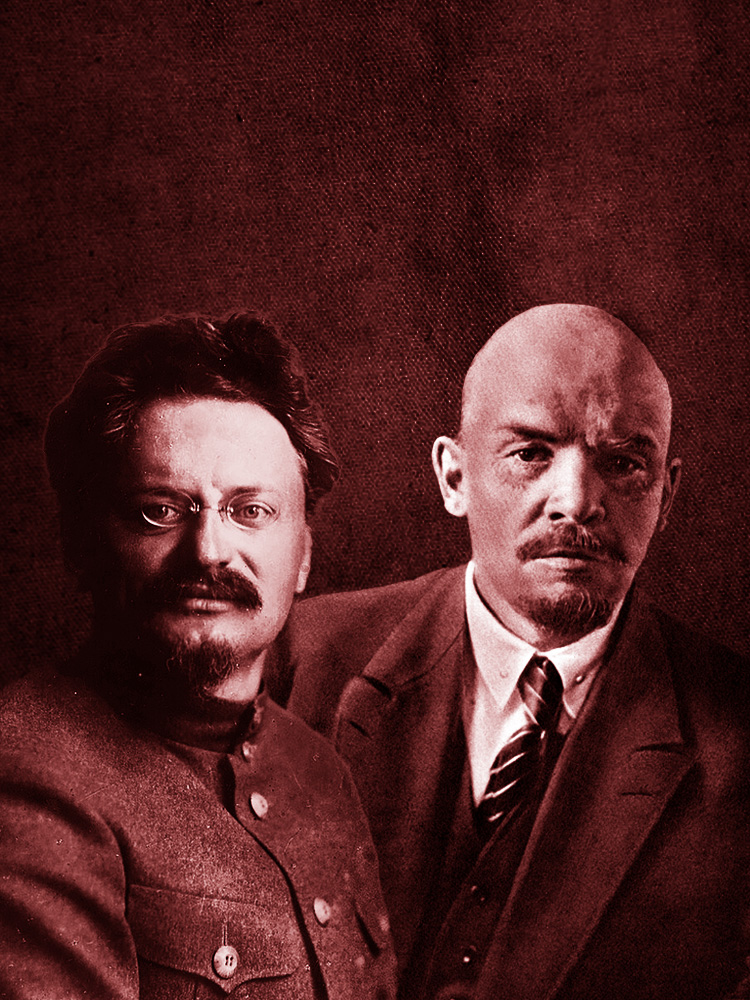

People, planet, and production: What
would socialism look like?
Room: Ada Salter
People, planet, and production: What would
socialism look like?
Room: Ada Salter
Speaker: Sarah Vedrovich
What we are against is clear: poverty, war, climate catastrophe, and oppression are all everyday features of capitalism in crisis. It is because of this that young people are looking towards revolutionary alternatives.
What we are for is often discussed less. The classless, stateless society we are striving to build will bring the most sweeping gains for the masses everywhere. It will transform society from top to bottom, economically, environmentally, and culturally.
However, this will not magically come into being the day after the revolution. It must be built.
In this talk, Sarah Vedrovitch, member of the RCP Central Committee, will discuss how this world can be built and what society will look like from the day after the revolution as it moves toward a truly communist future.
What we are against is clear: poverty, war, climate catastrophe, and oppression are all everyday features of capitalism in crisis. It is because of this that young people are looking towards revolutionary alternatives.
What we are for is often discussed less. The classless, stateless society we are striving to build will bring the most sweeping gains for the masses everywhere. It will transform society from top to bottom, economically, environmentally, and culturally.
However, this will not magically come into being the day after the revolution. It must be built.
In this talk, Sarah Vedrovitch, member of the RCP Central Committee, will discuss how this world can be built and what society will look like from the day after the revolution as it moves toward a truly communist future.


Science, the crisis in cosmology, and the
Big Bang
Room: Hilda Clark
Science, the crisis in cosmology, and the
Big Bang
Room: Hilda Clark
Speaker: Ben Curry
Men and women have looked up at the night sky and speculated about the nature of the universe since prehistoric times. Those speculations were the first gropings towards science. But science was bound up with myth; cosmology with cosmogeny; astronomy with astrology.
Since the scientific revolution of the 16th century, myth has been squeezed in cosmology. But in the last century, a century of capitalist decline, it has made a comeback under the guise of a new Creation myth, the Big Bang.
Since the 1990s, this has ossified into the so-called Standard Model. Today, advances in observational astronomy are fatally undermining that model.
In this discussion, Ben Curry, member of the International Secretariat of the RCI, will look at how the philosophical thought of an age impinges on this science, where a clear philosophy is above all necessary if we’re to relate the finite sphere of our observations to the infinite cosmos beyond, and the little sliver of time we’re able to study its magnificent unfolding to the whole eternity that stretches behind us and ahead of us.
Men and women have looked up at the night sky and speculated about the nature of the universe since prehistoric times. Those speculations were the first gropings towards science. But science was bound up with myth; cosmology with cosmogeny; astronomy with astrology.
Since the scientific revolution of the 16th century, myth has been squeezed in cosmology. But in the last century, a century of capitalist decline, it has made a comeback under the guise of a new Creation myth, the Big Bang.
Since the 1990s, this has ossified into the so-called Standard Model. Today, advances in observational astronomy are fatally undermining that model.
In this discussion, Ben Curry, member of the International Secretariat of the RCI, will look at how the philosophical thought of an age impinges on this science, where a clear philosophy is above all necessary if we’re to relate the finite sphere of our observations to the infinite cosmos beyond, and the little sliver of time we’re able to study its magnificent unfolding to the whole eternity that stretches behind us and ahead of us.

————————————————-
Closing remarks
16:30 - 17:00
Closing remarks
16:30 - 17:00

Join the fight for revolution, build the RCP!
Room: The Light (main auditorium)
Join the fight for revolution, build the RCP!
Room: The Light (main auditorium)
The purpose of the Revolution Festival is to theoretically prepare the next generation of communist class-fighters. As Lenin said, ‘without revolutionary theory, there can be no revolutionary movement.’
Ideas are our most powerful weapon in the struggle for a new world. But for their potential to be realised, we need to forge them into a revolutionary party that’s capable of linking them with the day-to-day struggle against the ills of the capitalist system.
In this closing session, leading comrades of the RCP will summarise the weekend’s events and discuss the road ahead.
The crisis of world capitalism continues to shake the world. Revolutionary movements are arising in one country after another. We’re being presented with another historic of opportunity to free humanity from the shackles of capitalism. Get organised and help us in this task.
Surrealism was a revolutionary artistic movement founded in 1922 and led by writer and poet André Breton.
The movement produced and influenced a galaxy of the 20th centuries finest artists.
Surrealist artwork deals in the bizarre and the strange. On the surface, it can seem as if this is all it is – though, it stands for something much deeper.
Surrealism grew out of the general feeling of malaise and anger that existed across Europe following the barbarism of the First World War and at the same time the inspiration from the revolutionary events that swept Europe.
This revolutionary spirit reflected itself in the art produced by the surrealists. Surrealist art seeks to express a contradictory view of reality. It reveals the violence and savagery that lurks underneath the thin veneer of bourgeois civilization. The polite manners and “good taste” of bourgeois society is really just a façade that conceals the most terrible suffering, exploitation and repression.
But really the essence of the surrealist movement, was to liberate the artist from the shackles of ‘official’ culture, the state, church and even of the mind itself.
The surrealists were not at all armchair socialists, but actively involved in the communist movement.